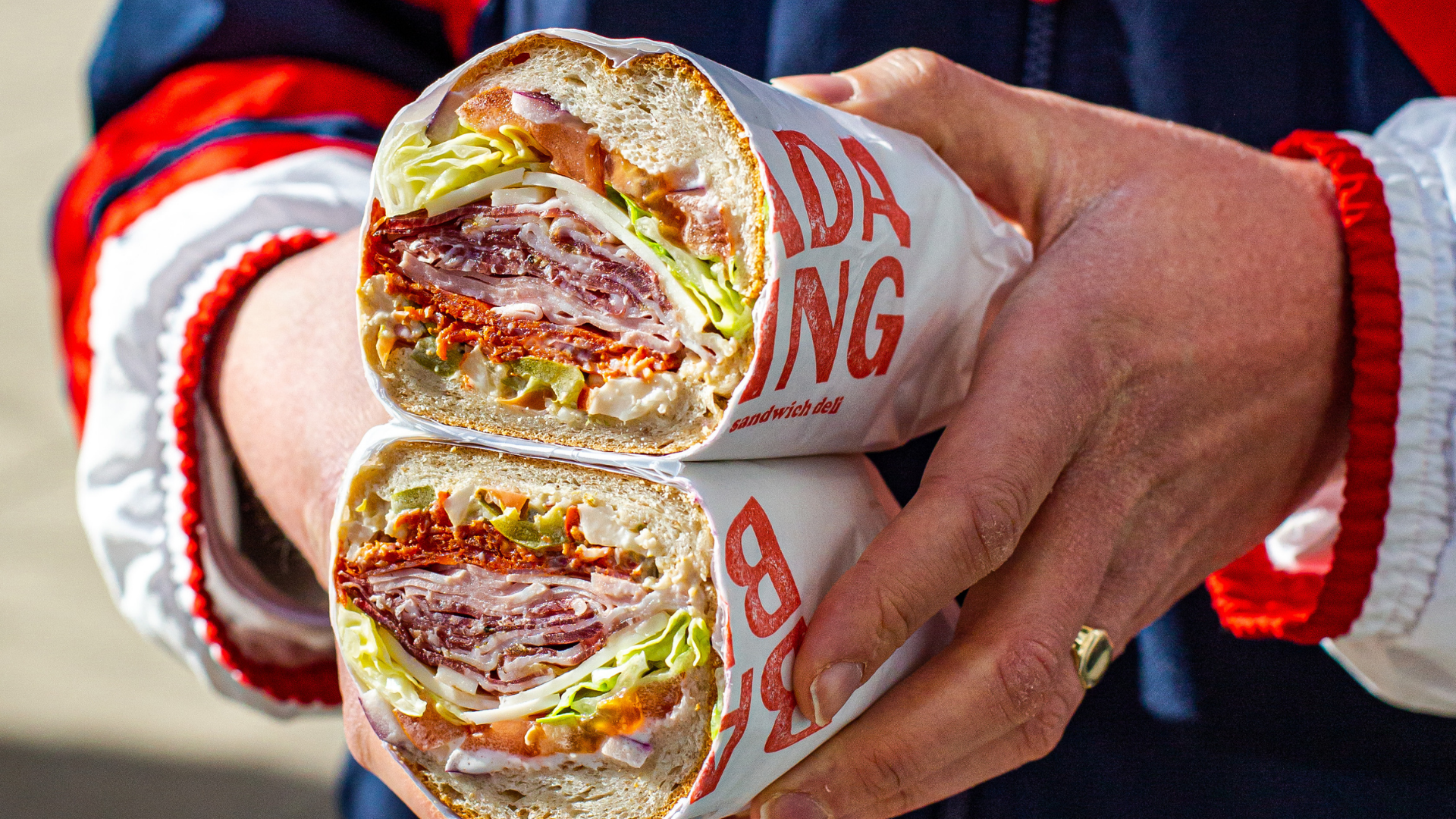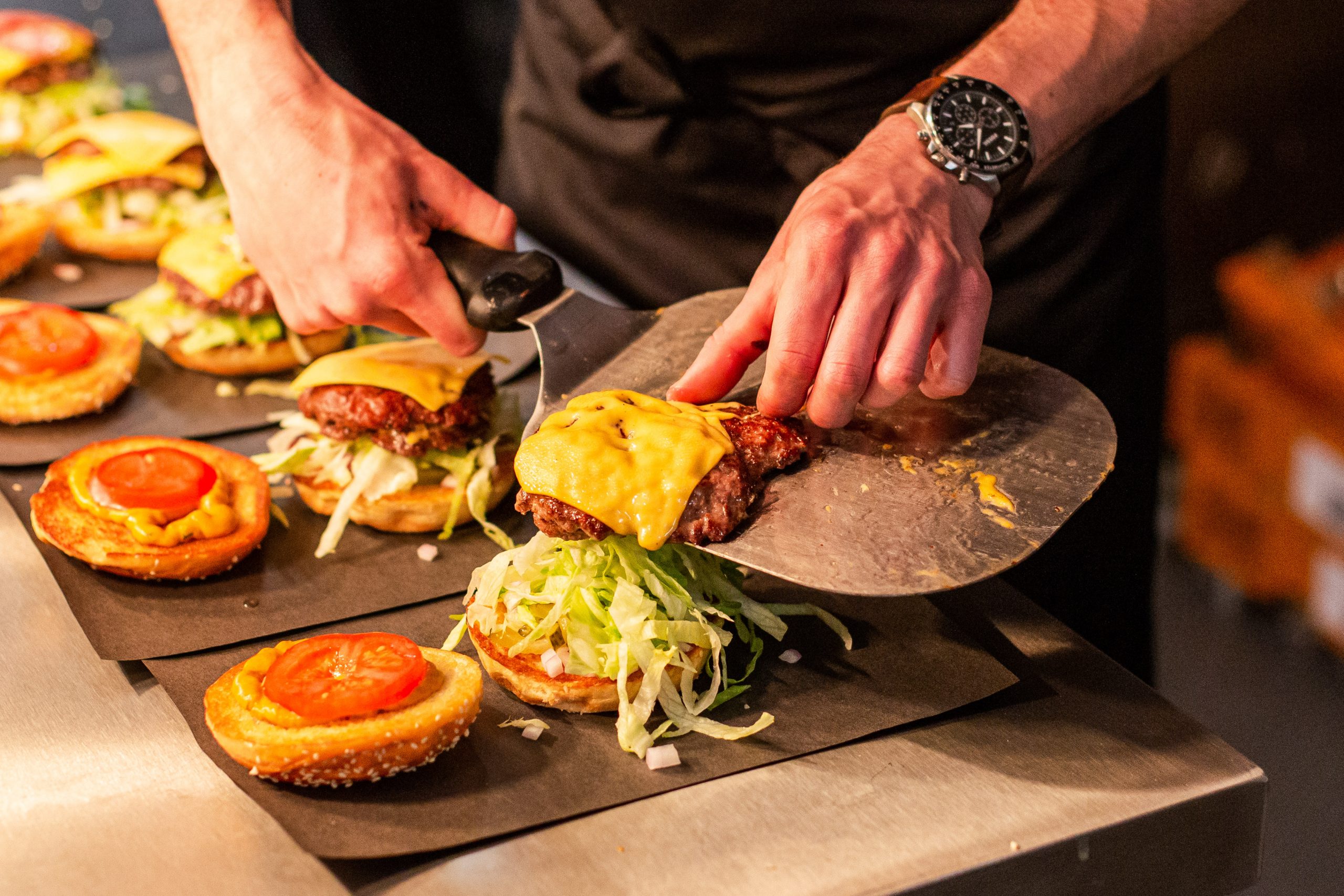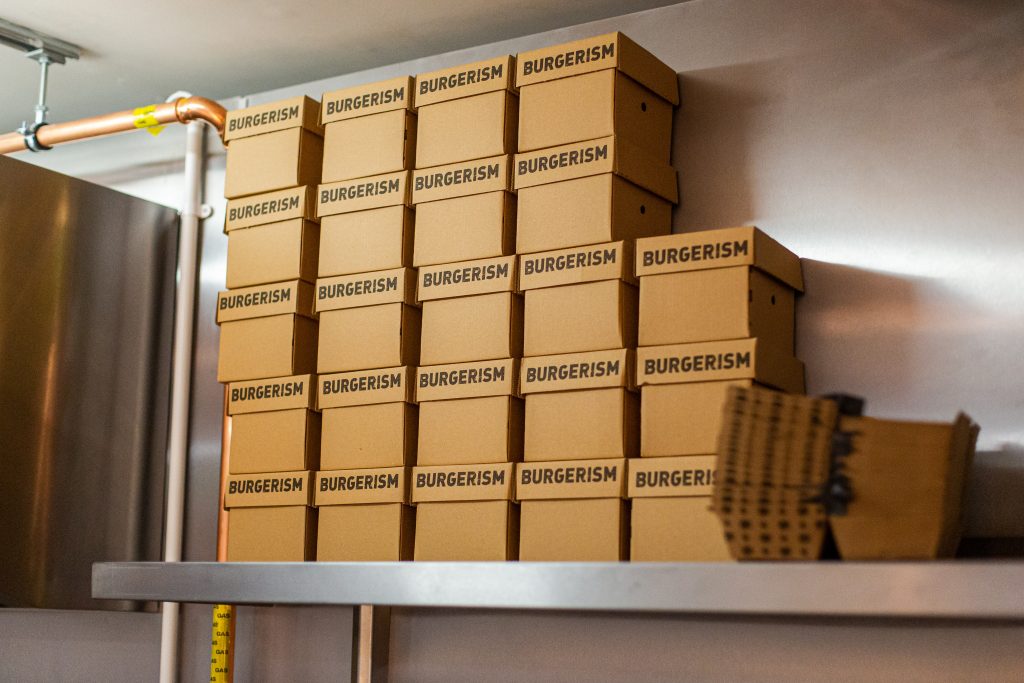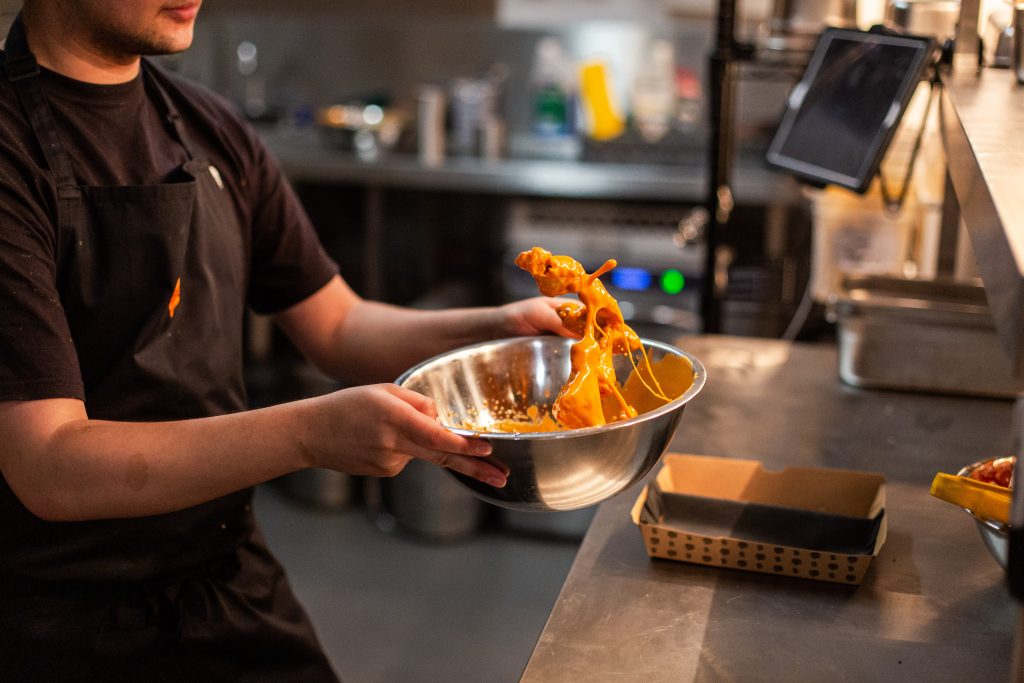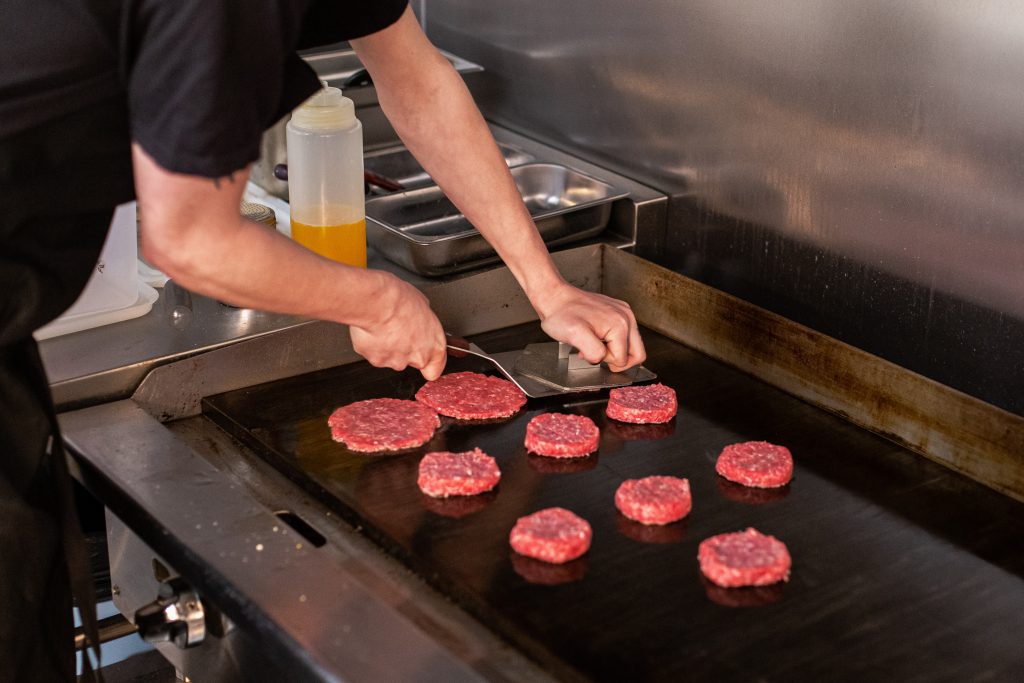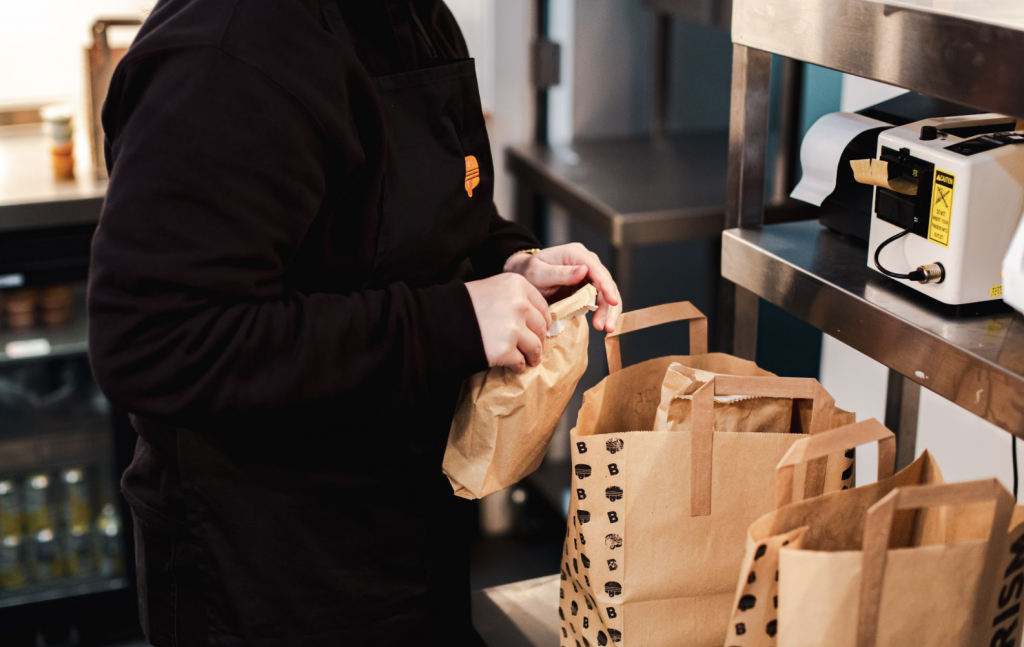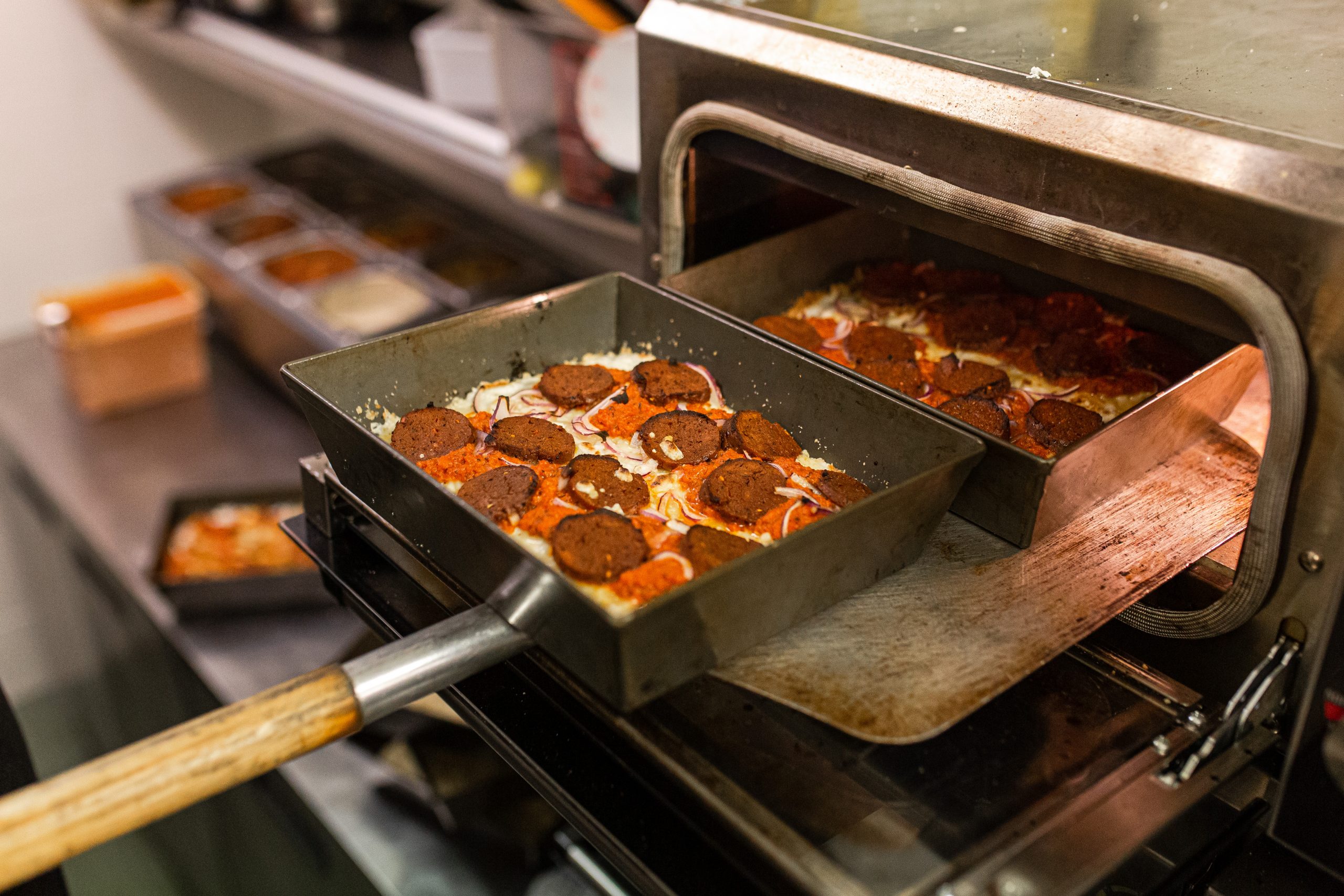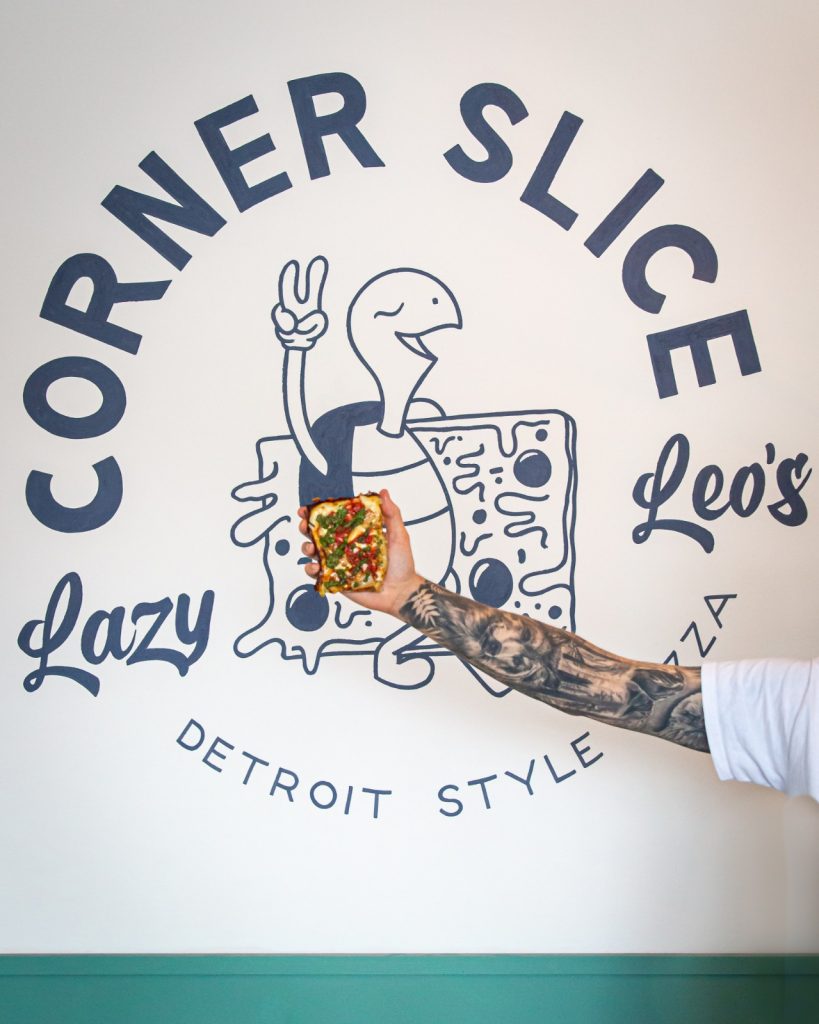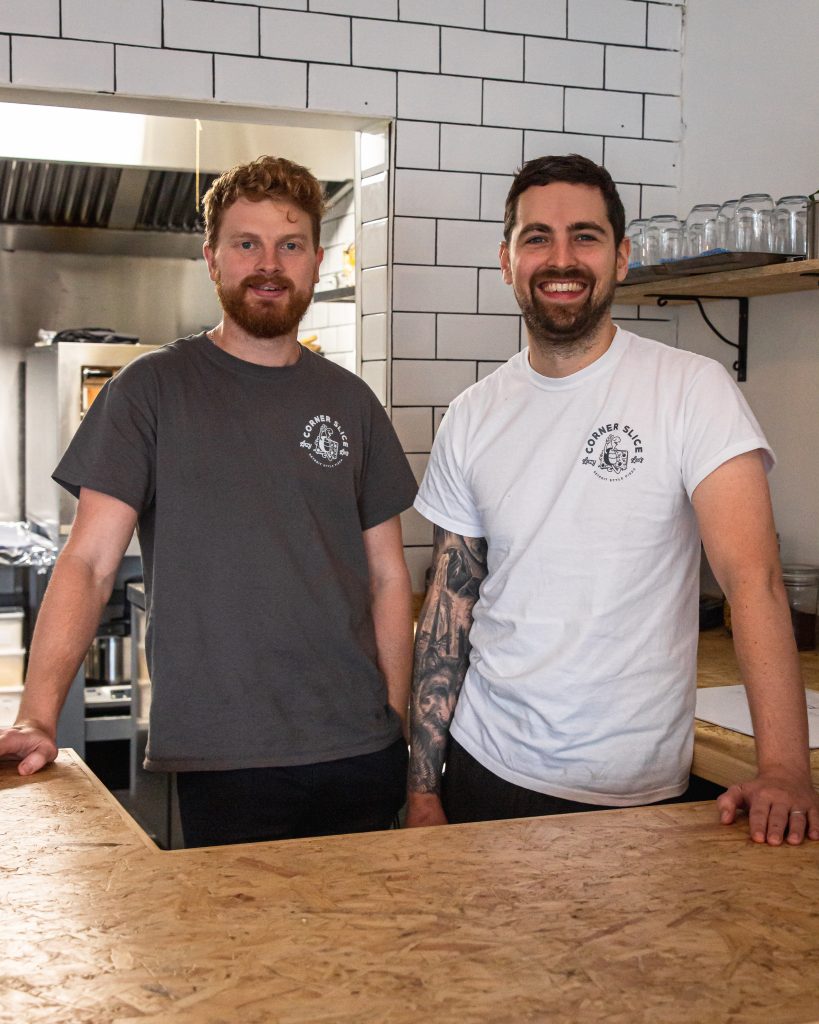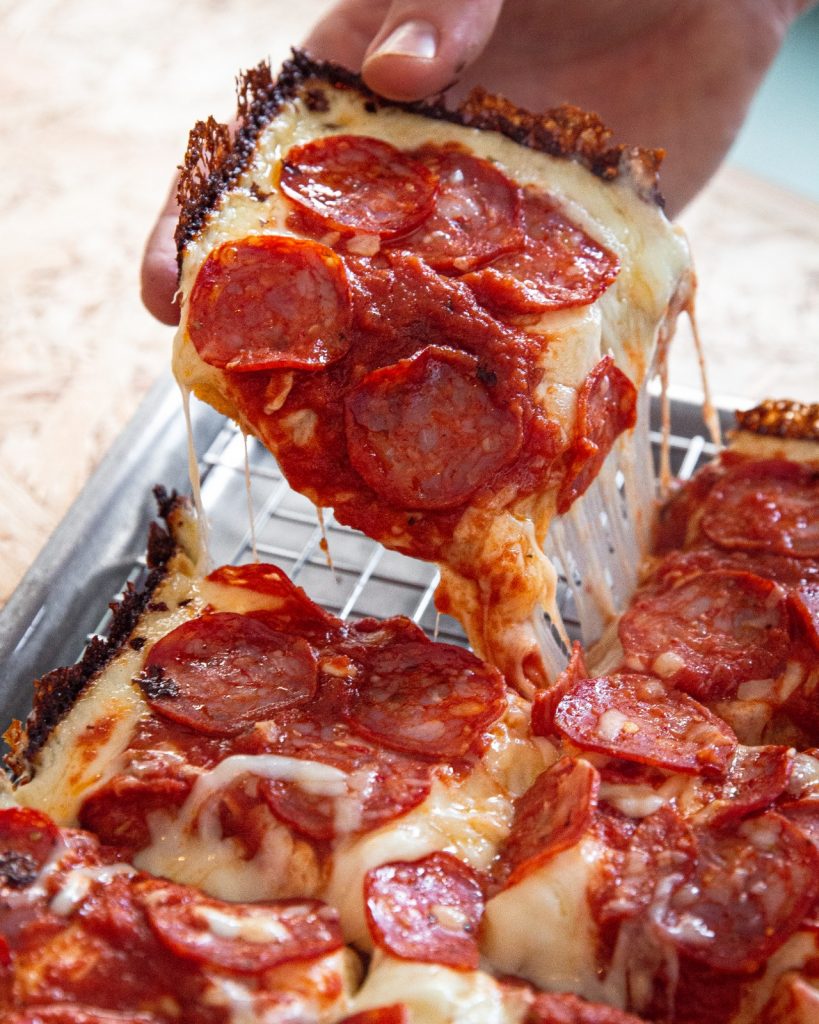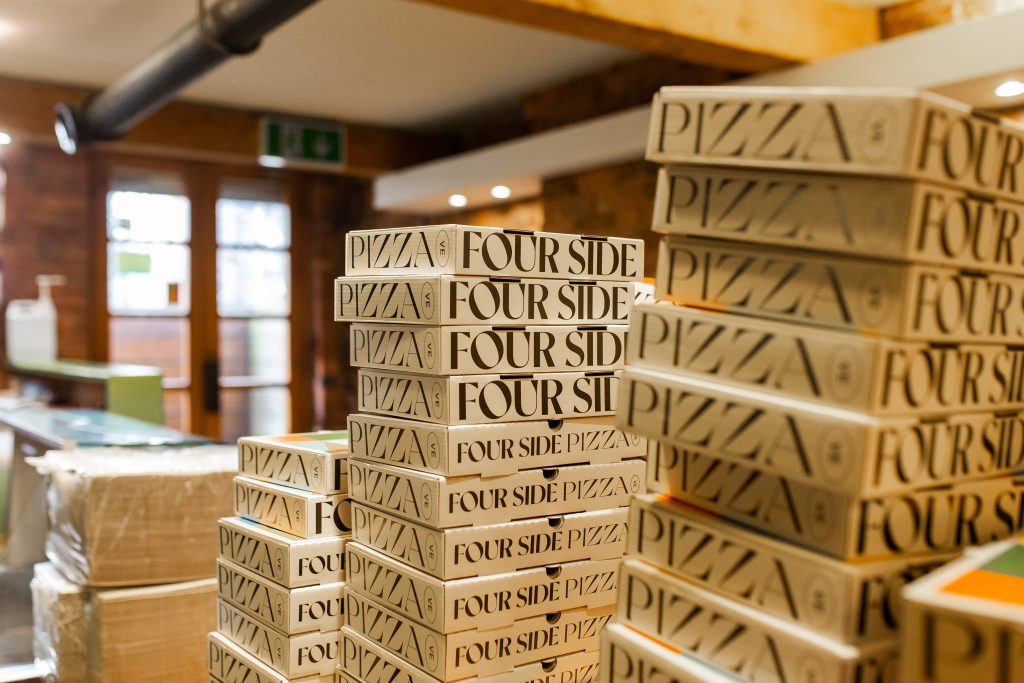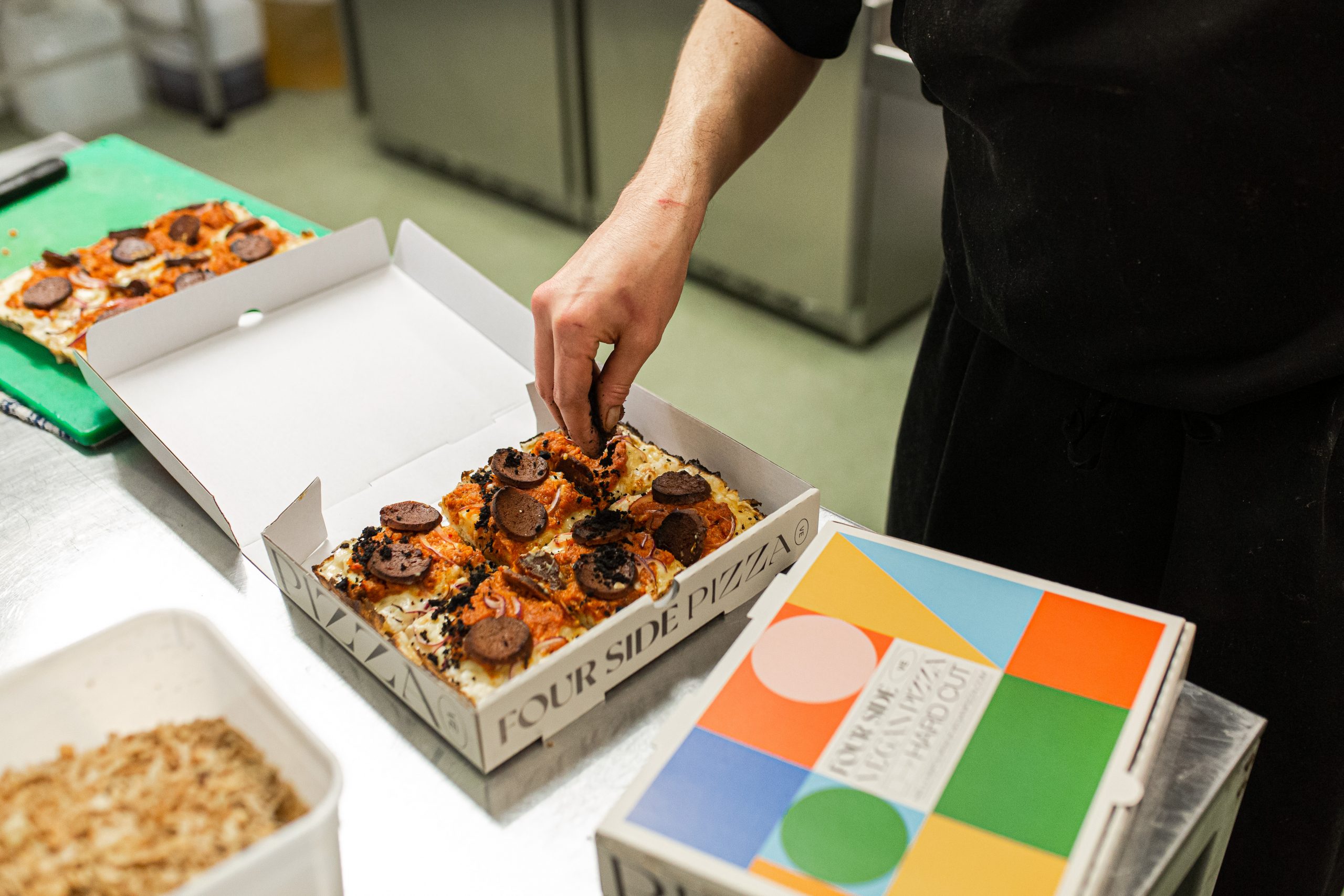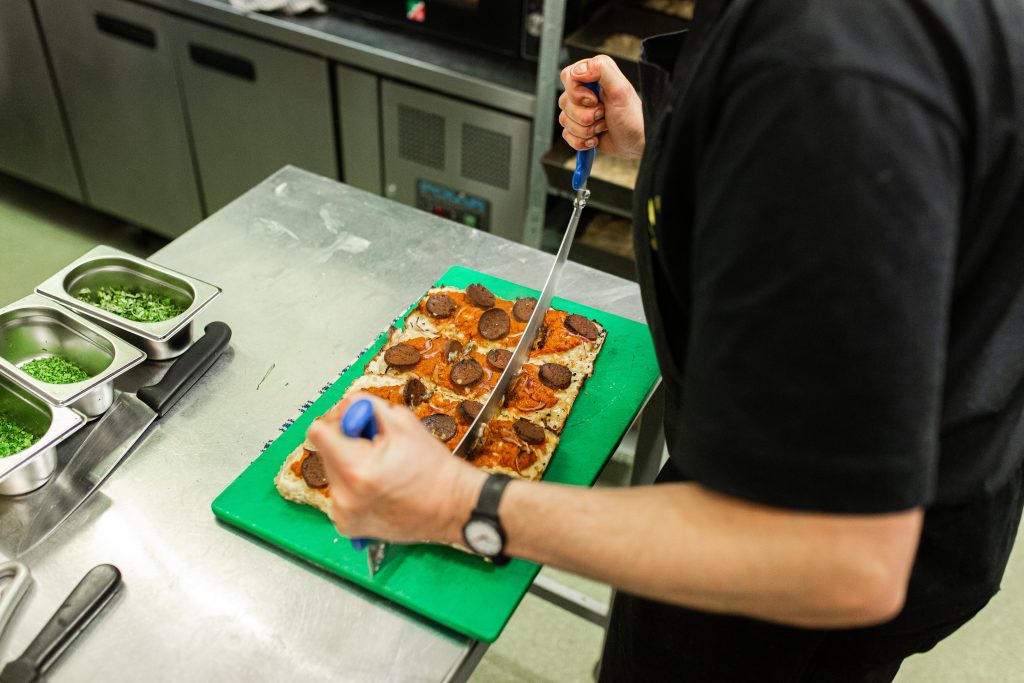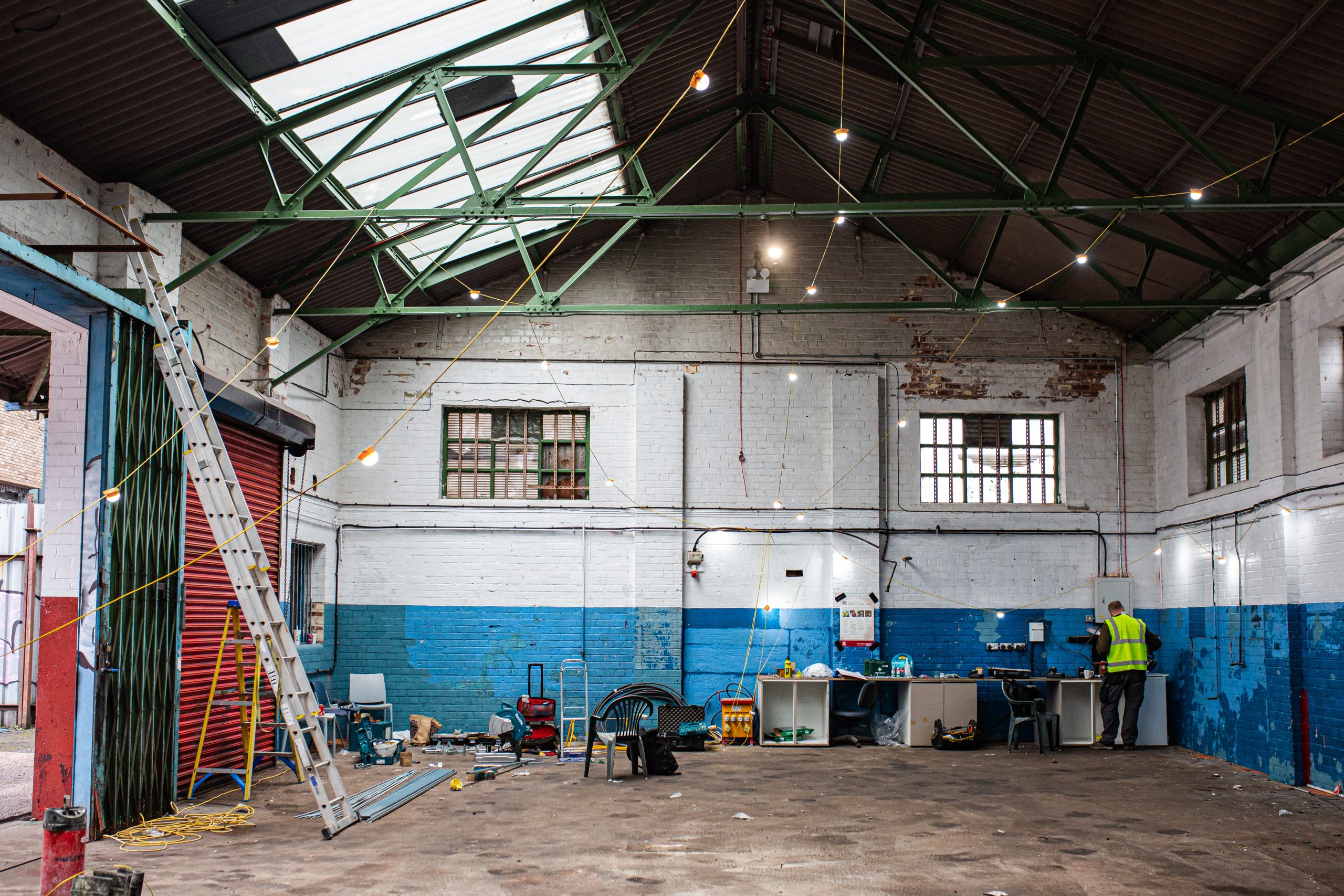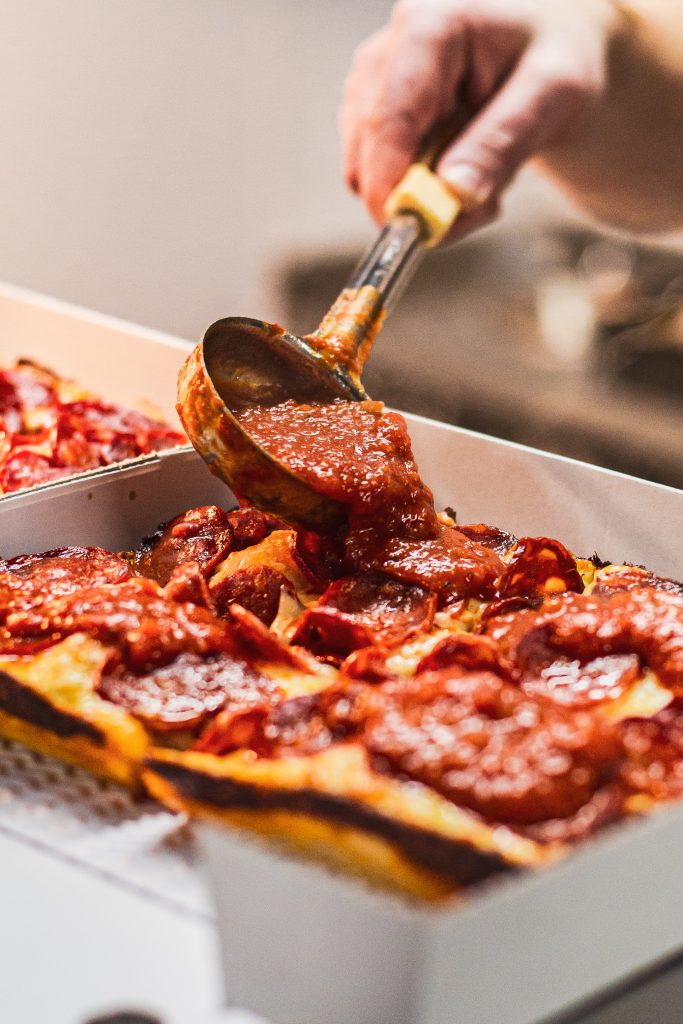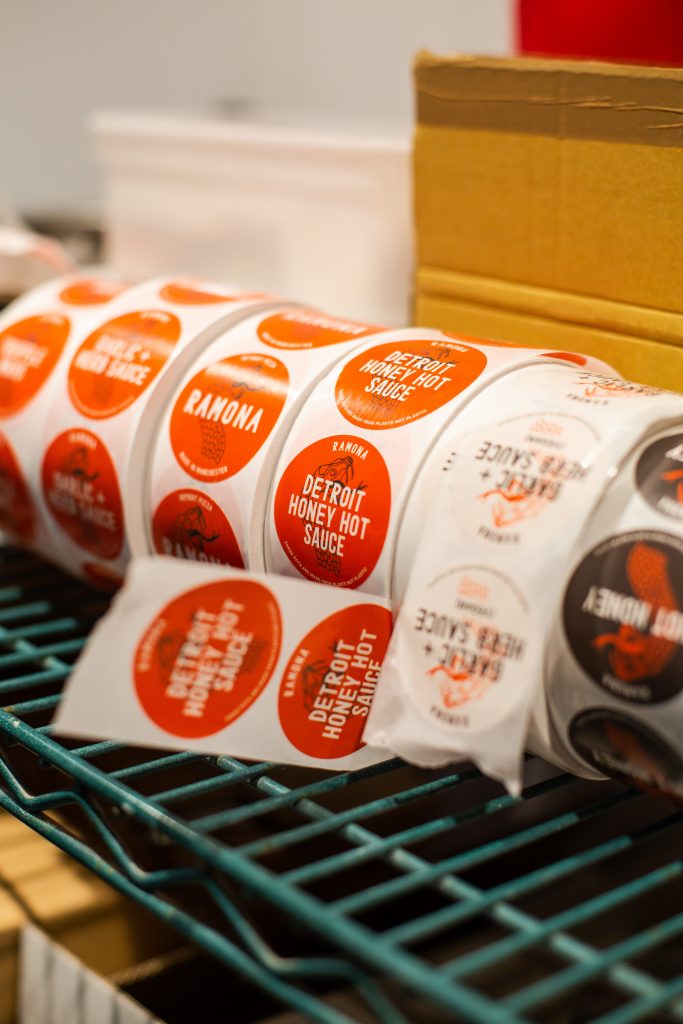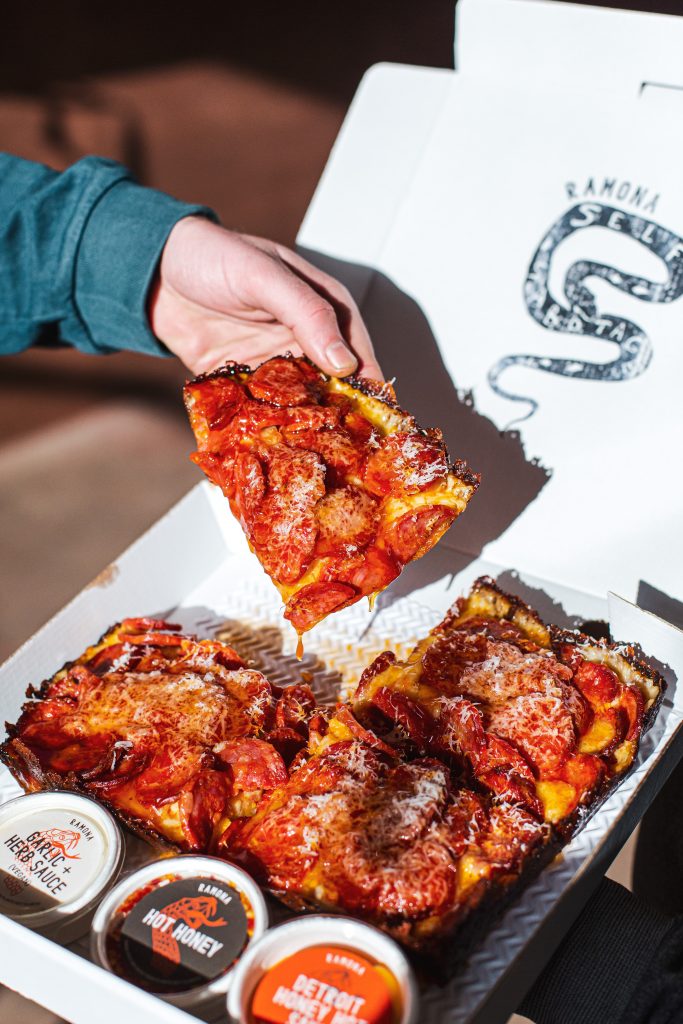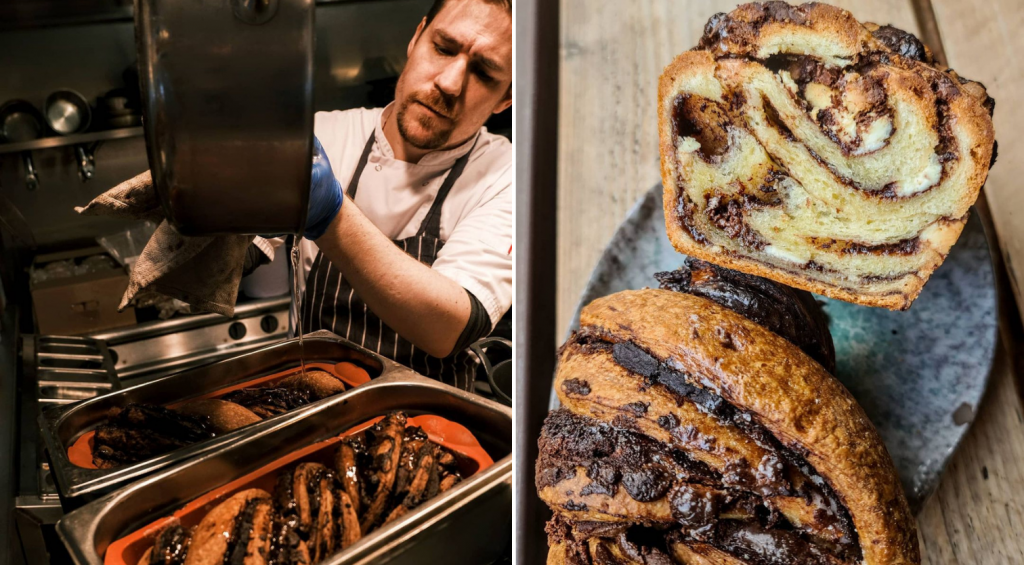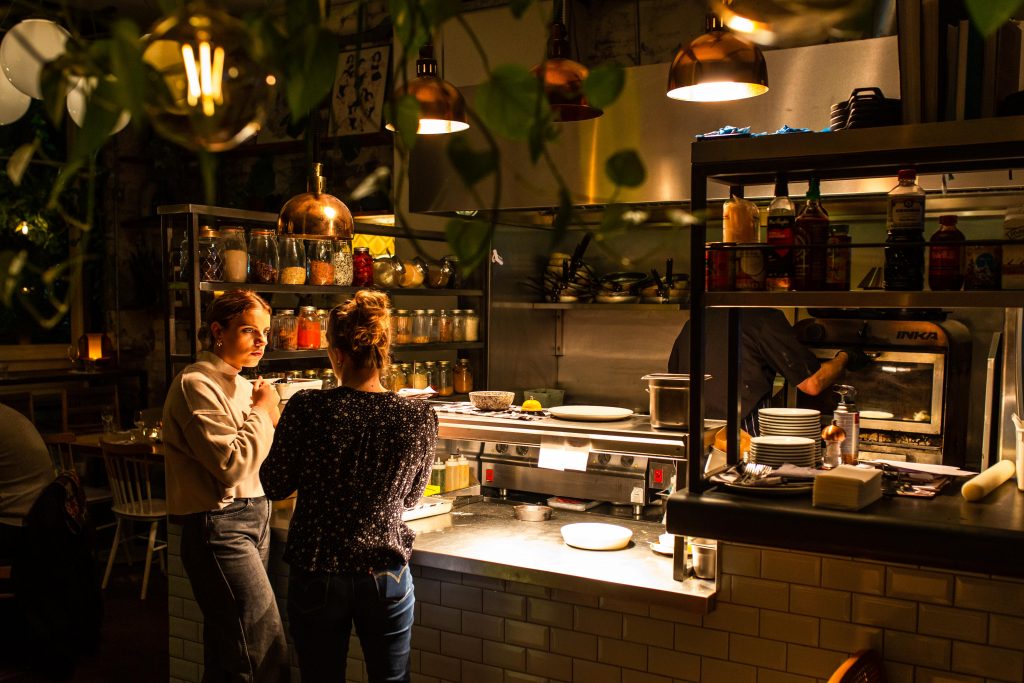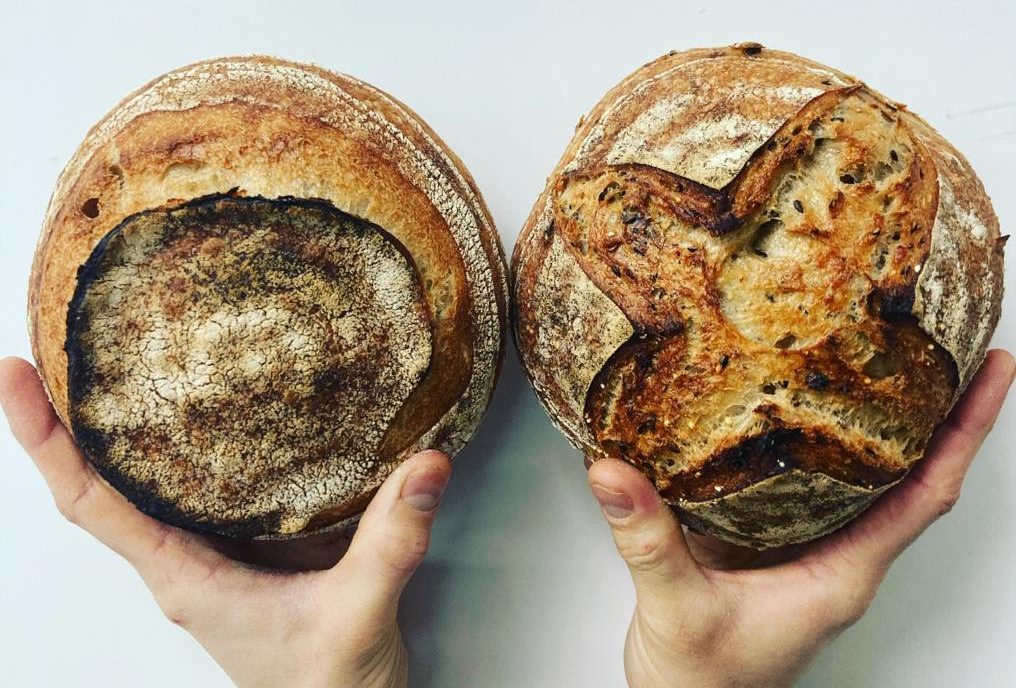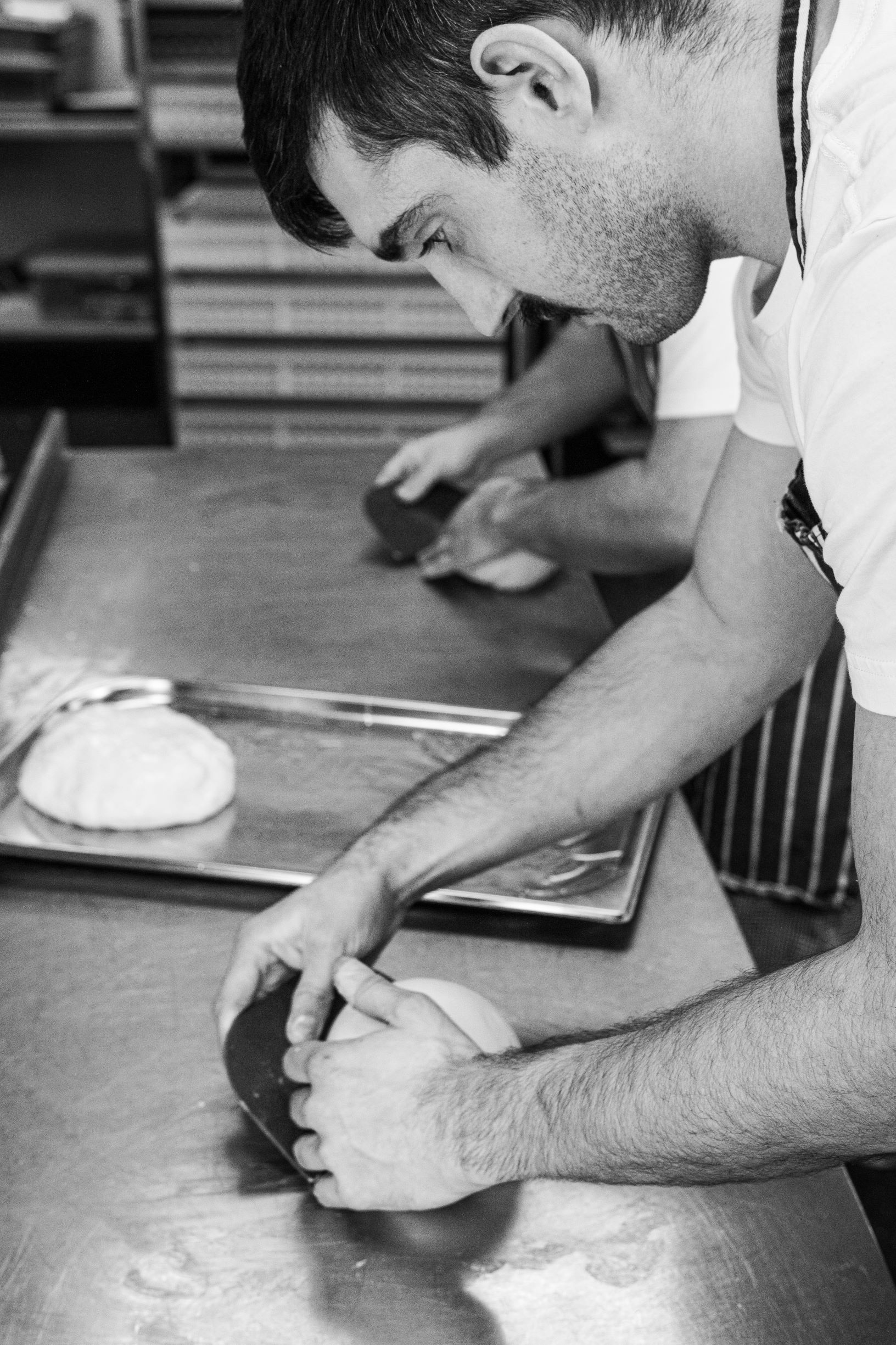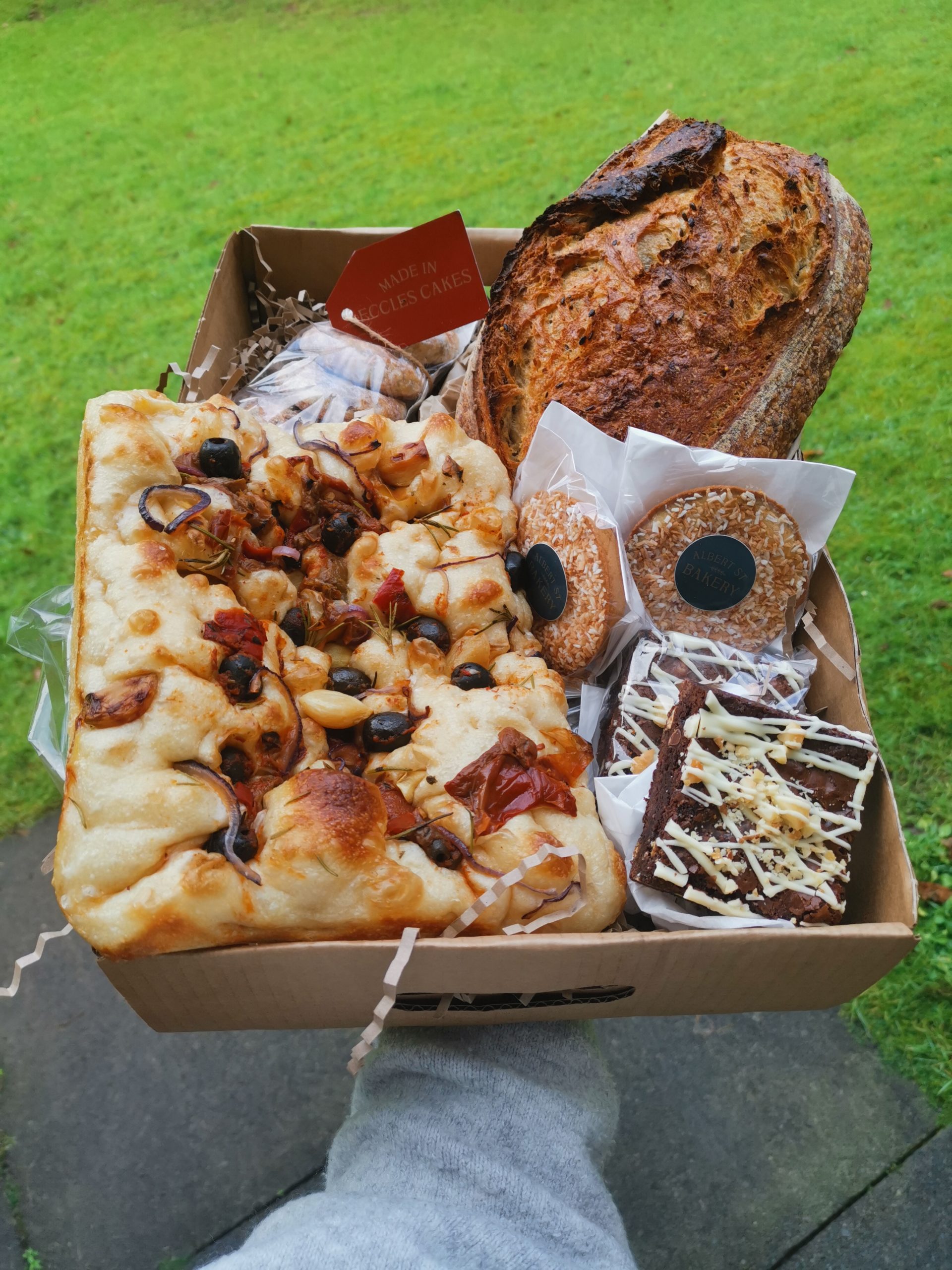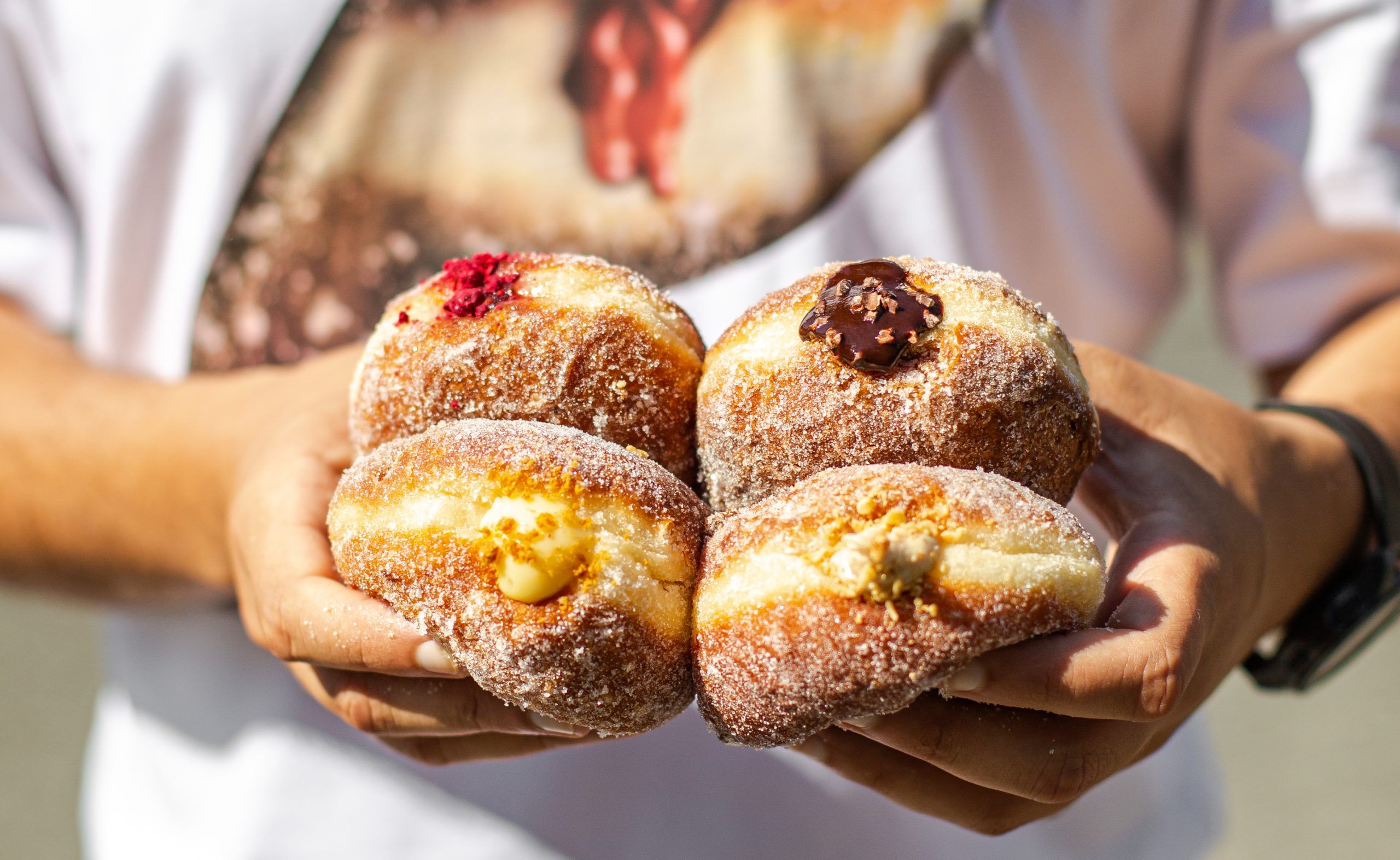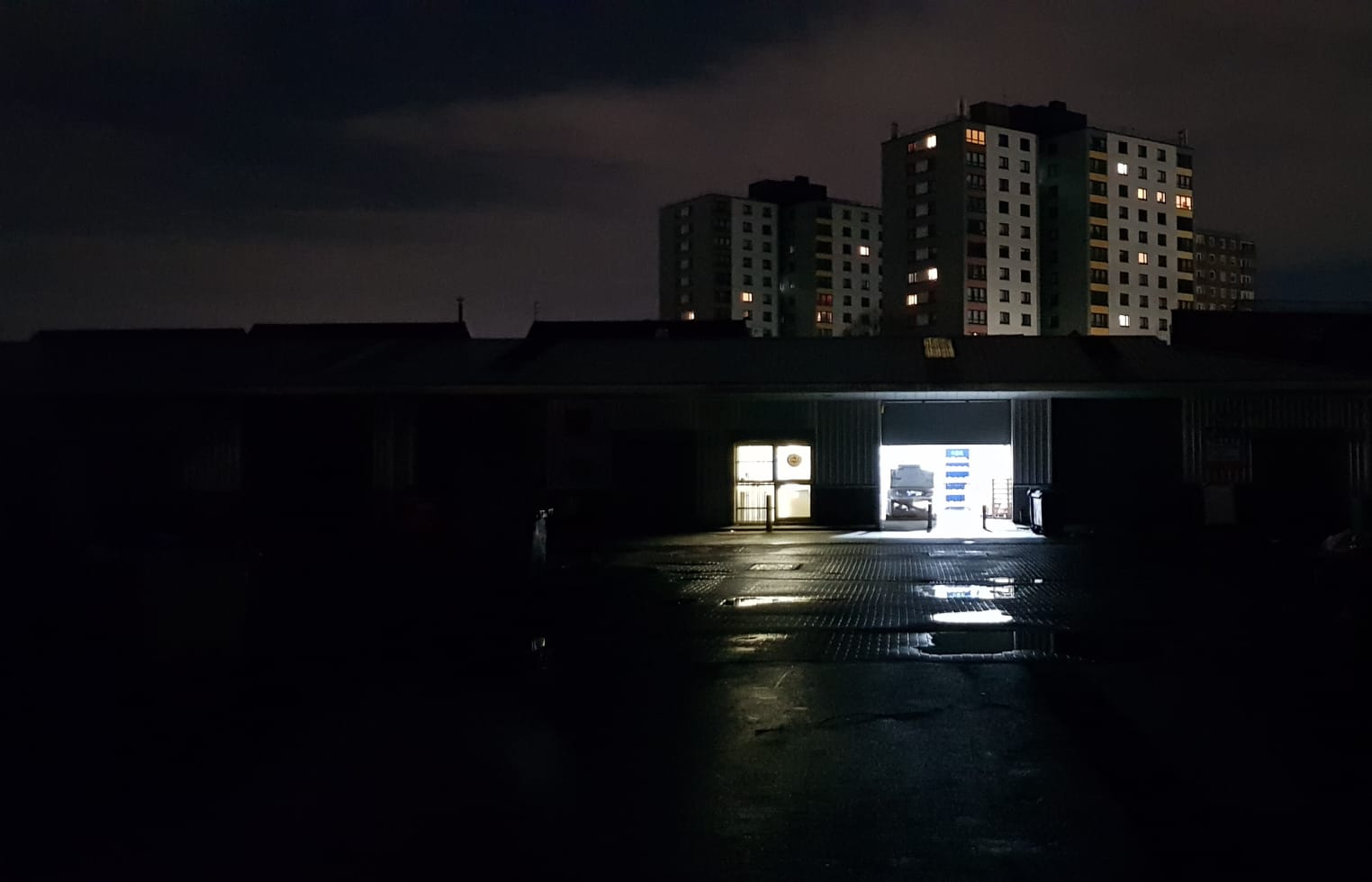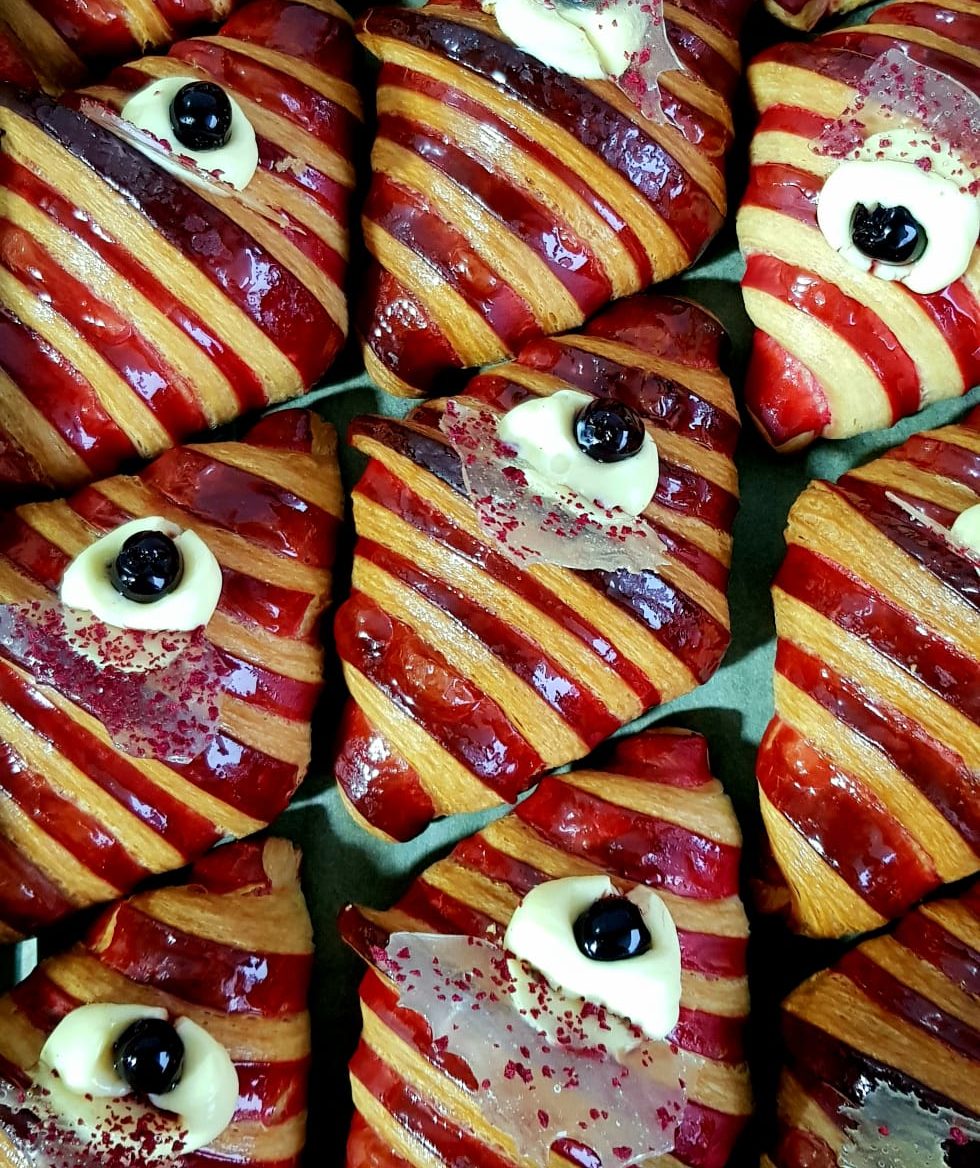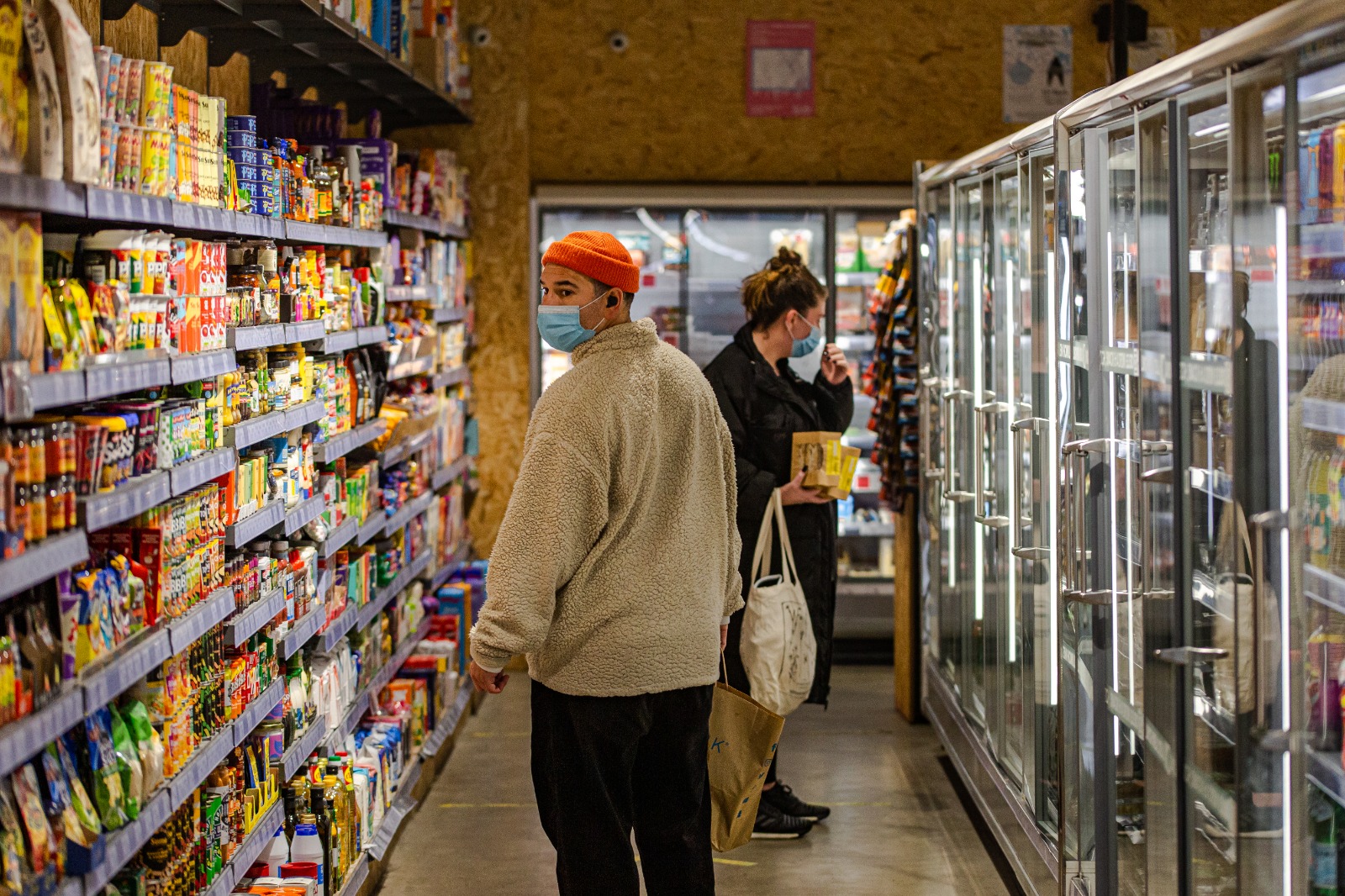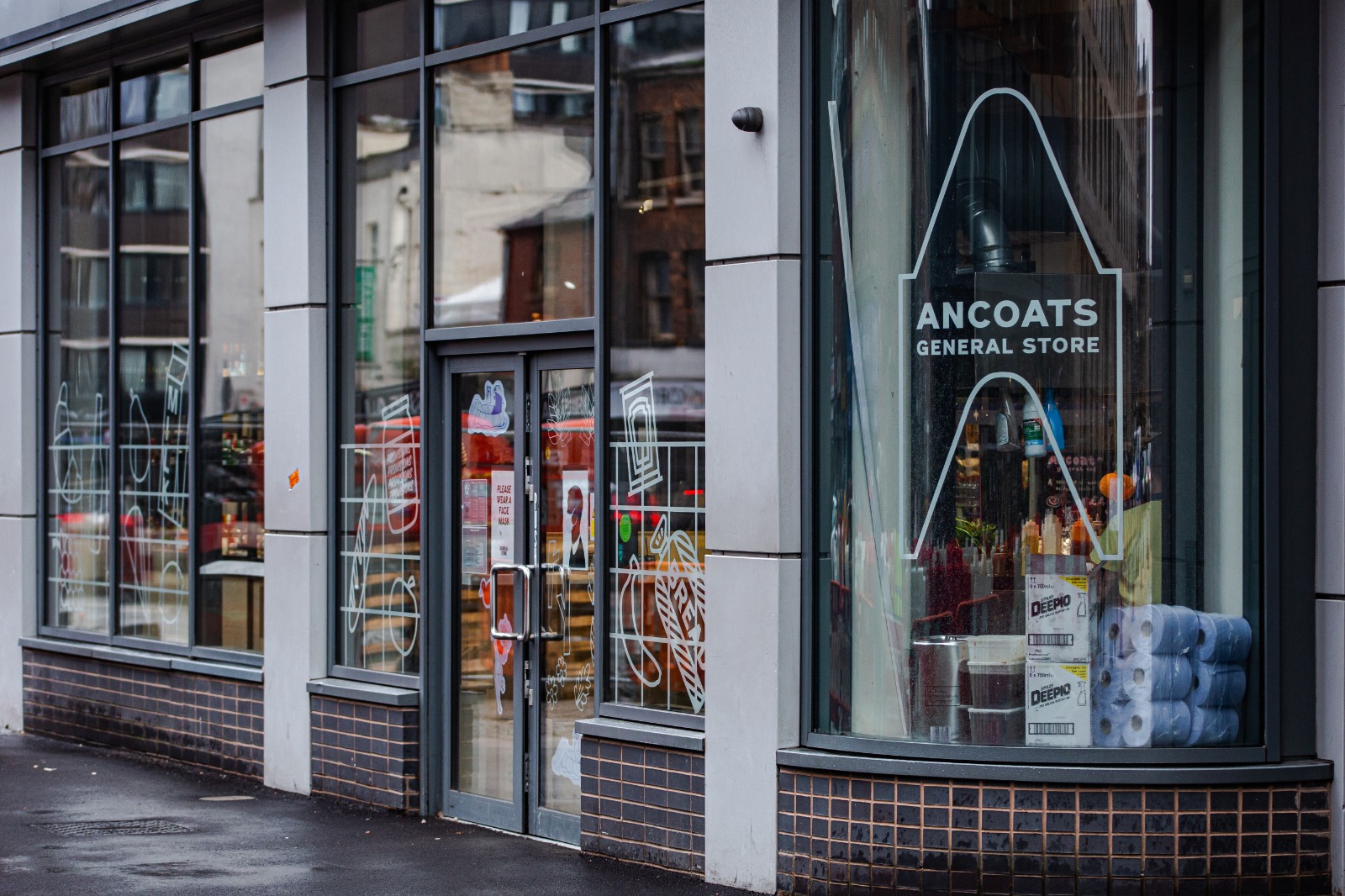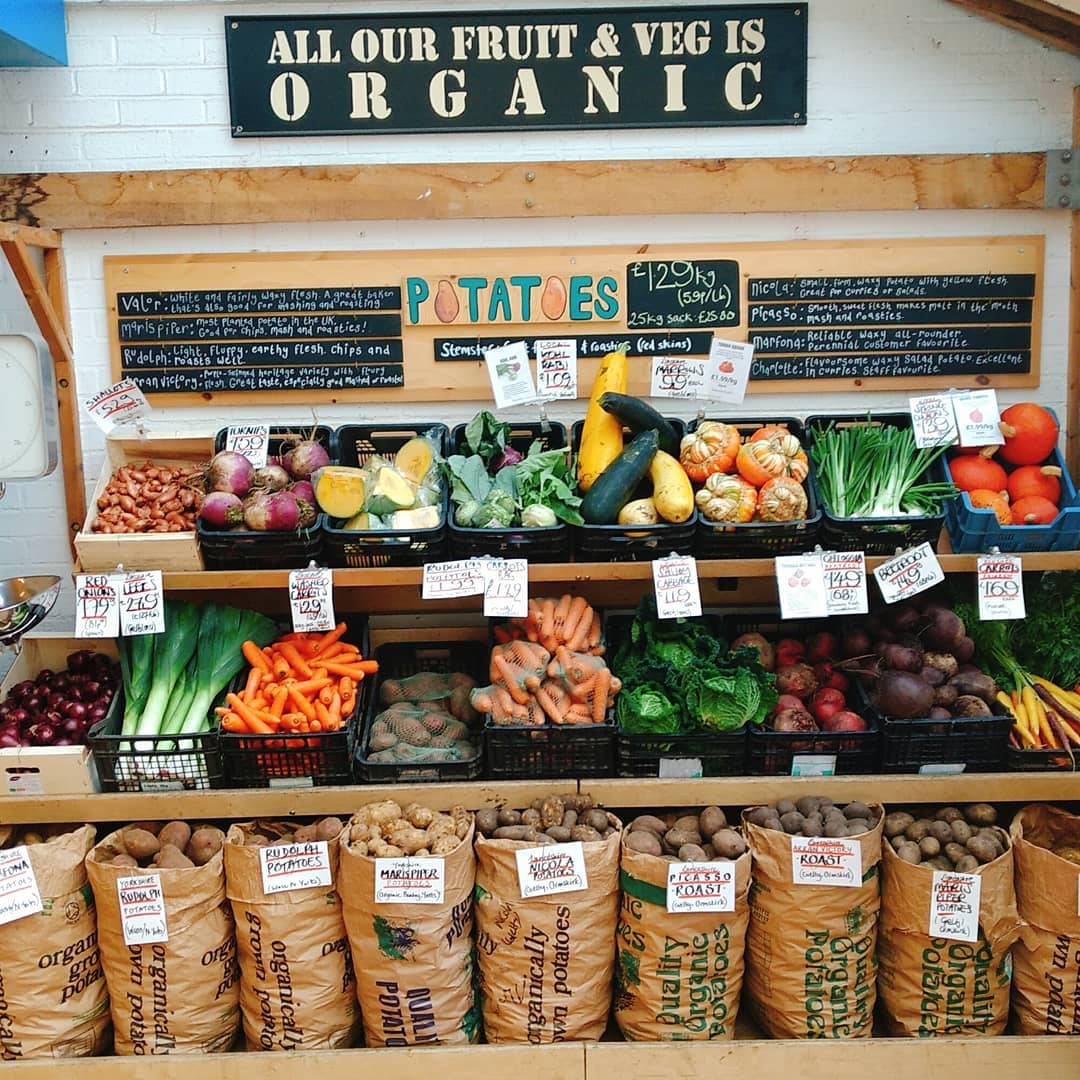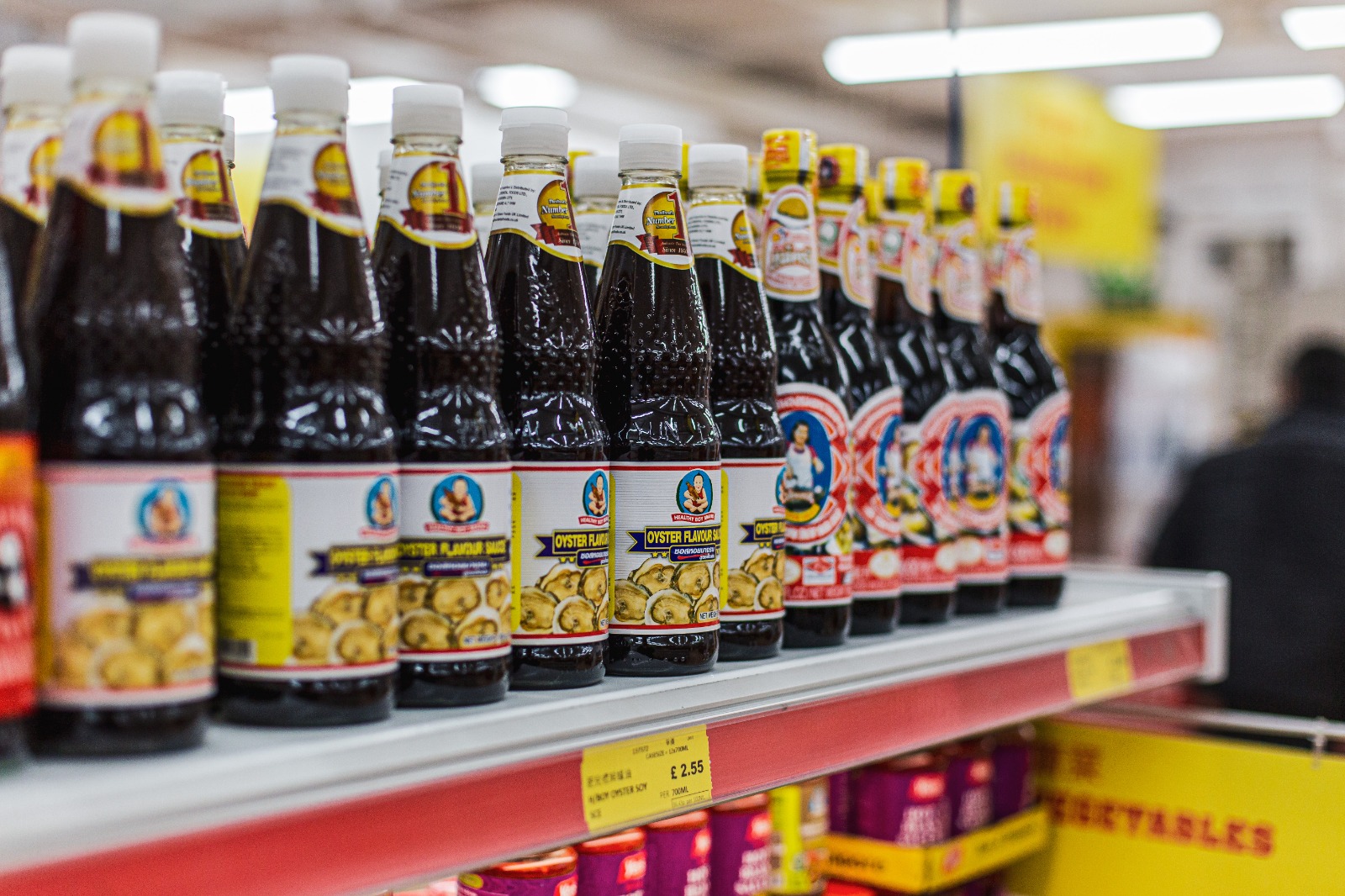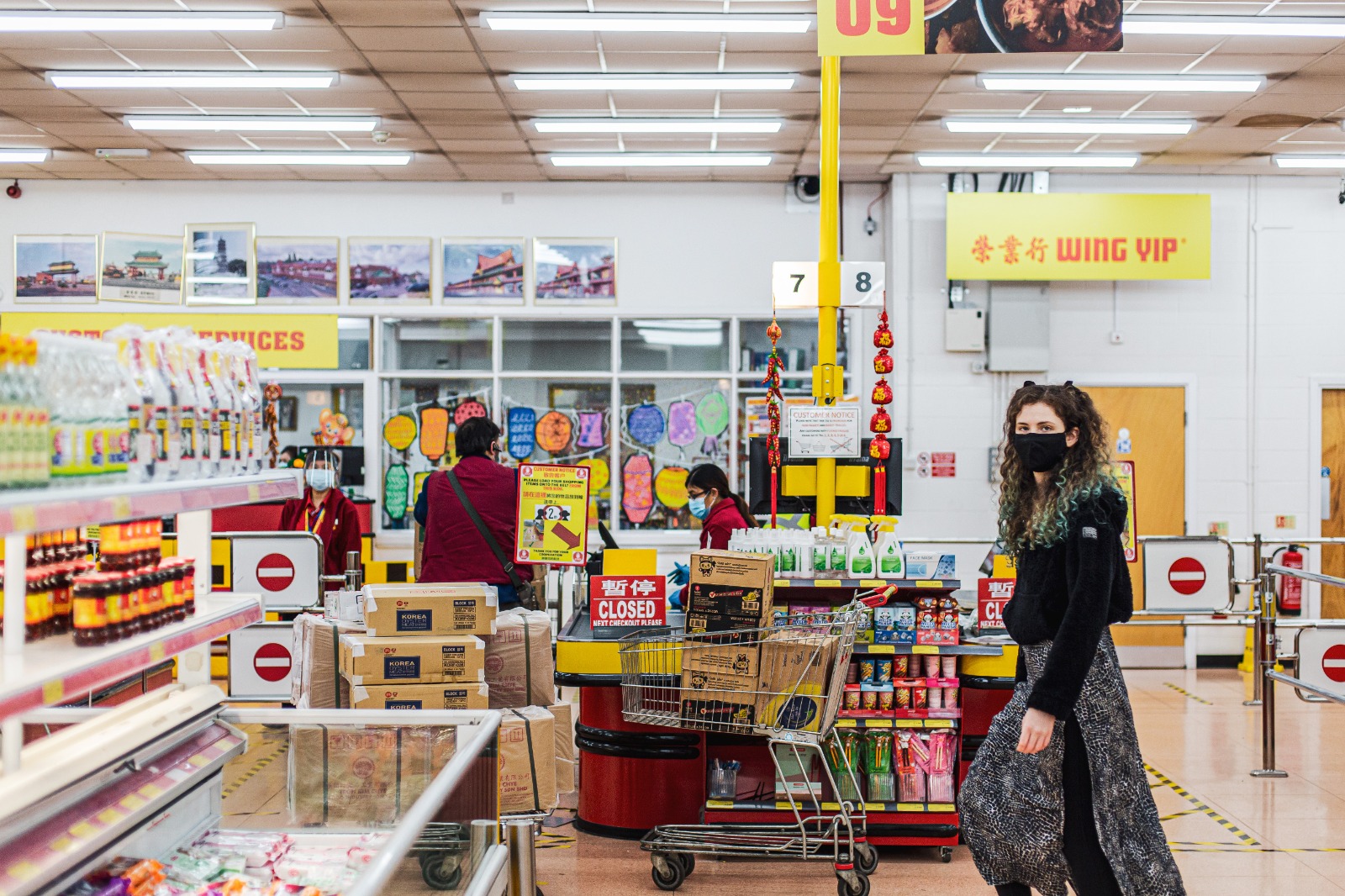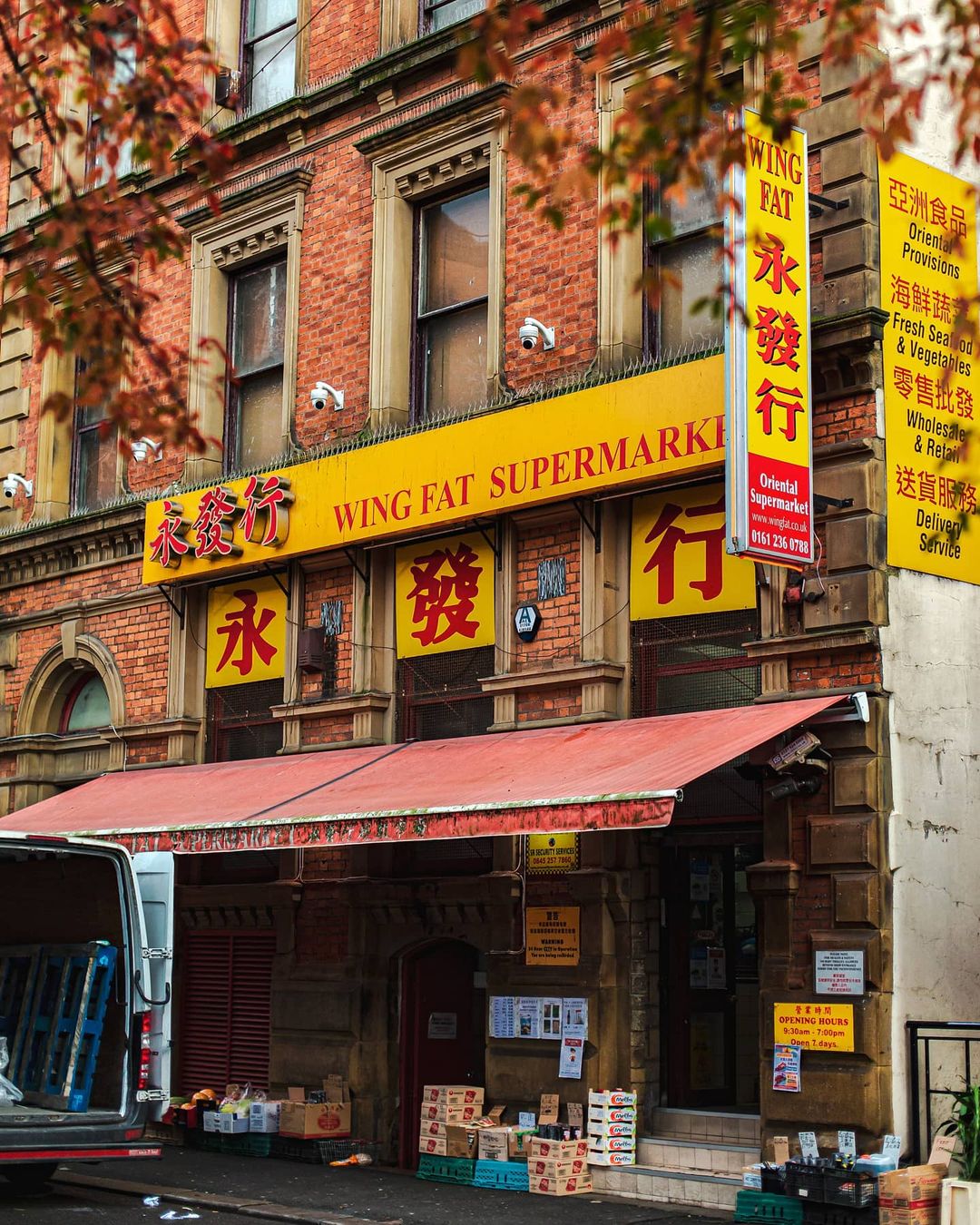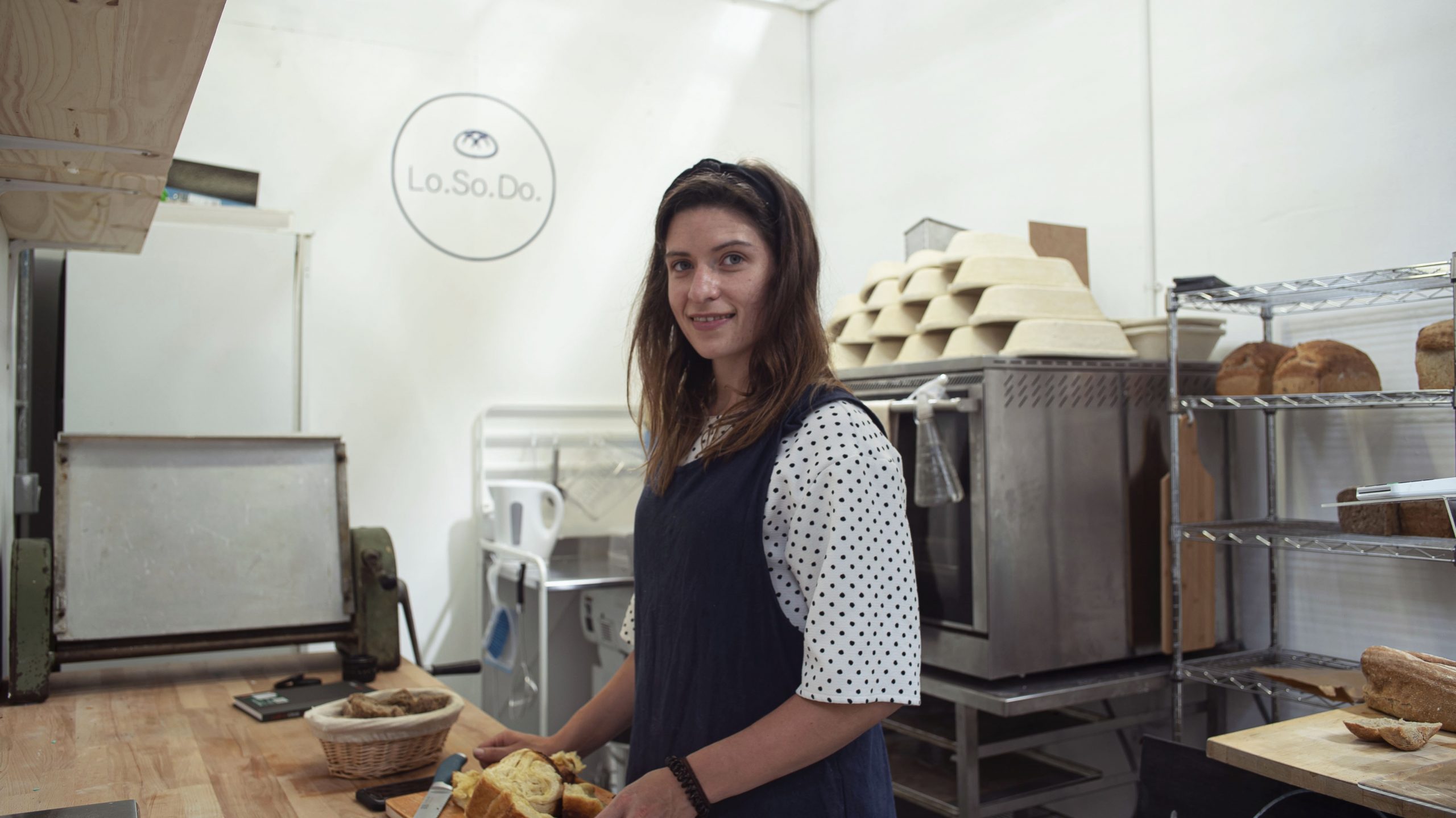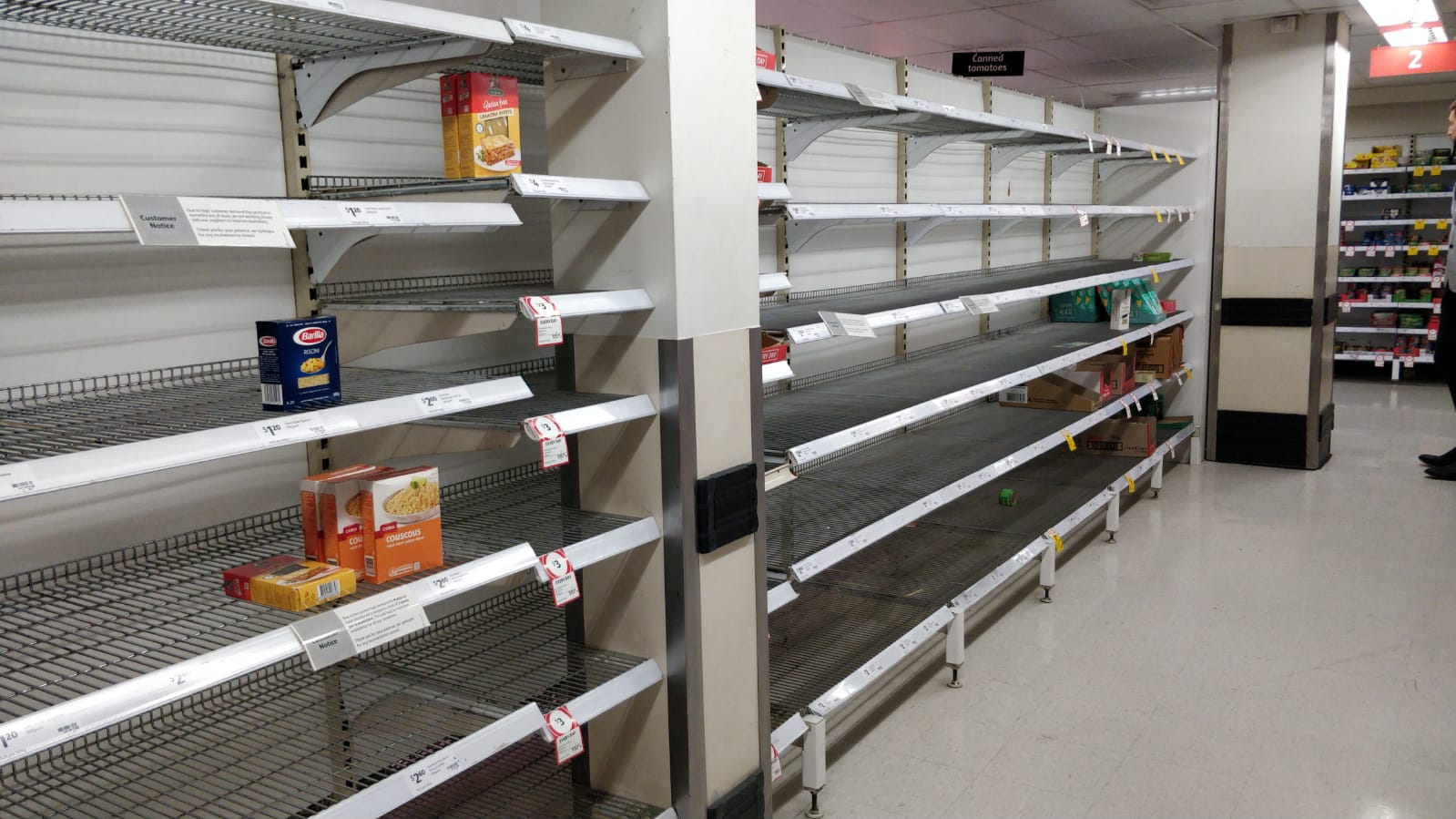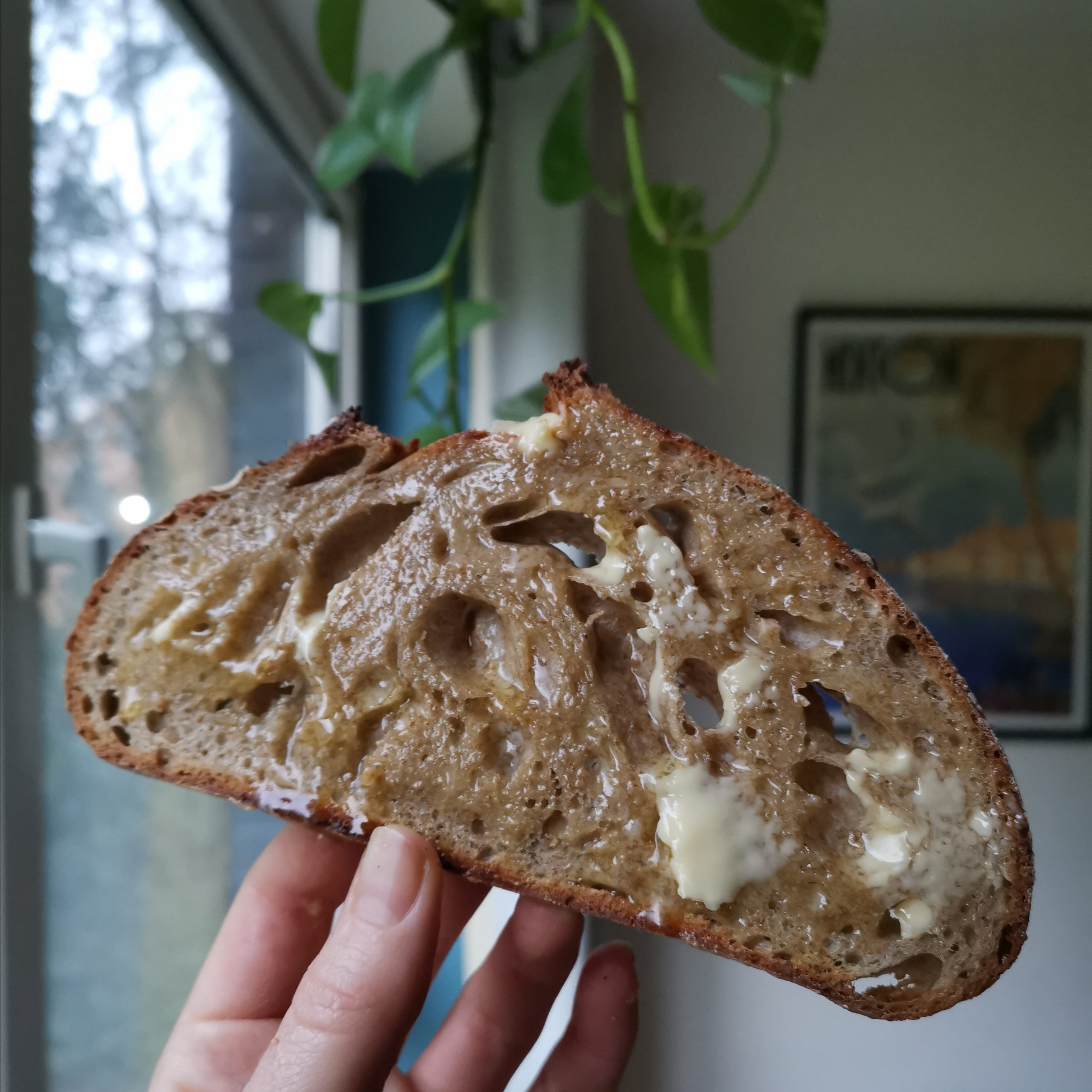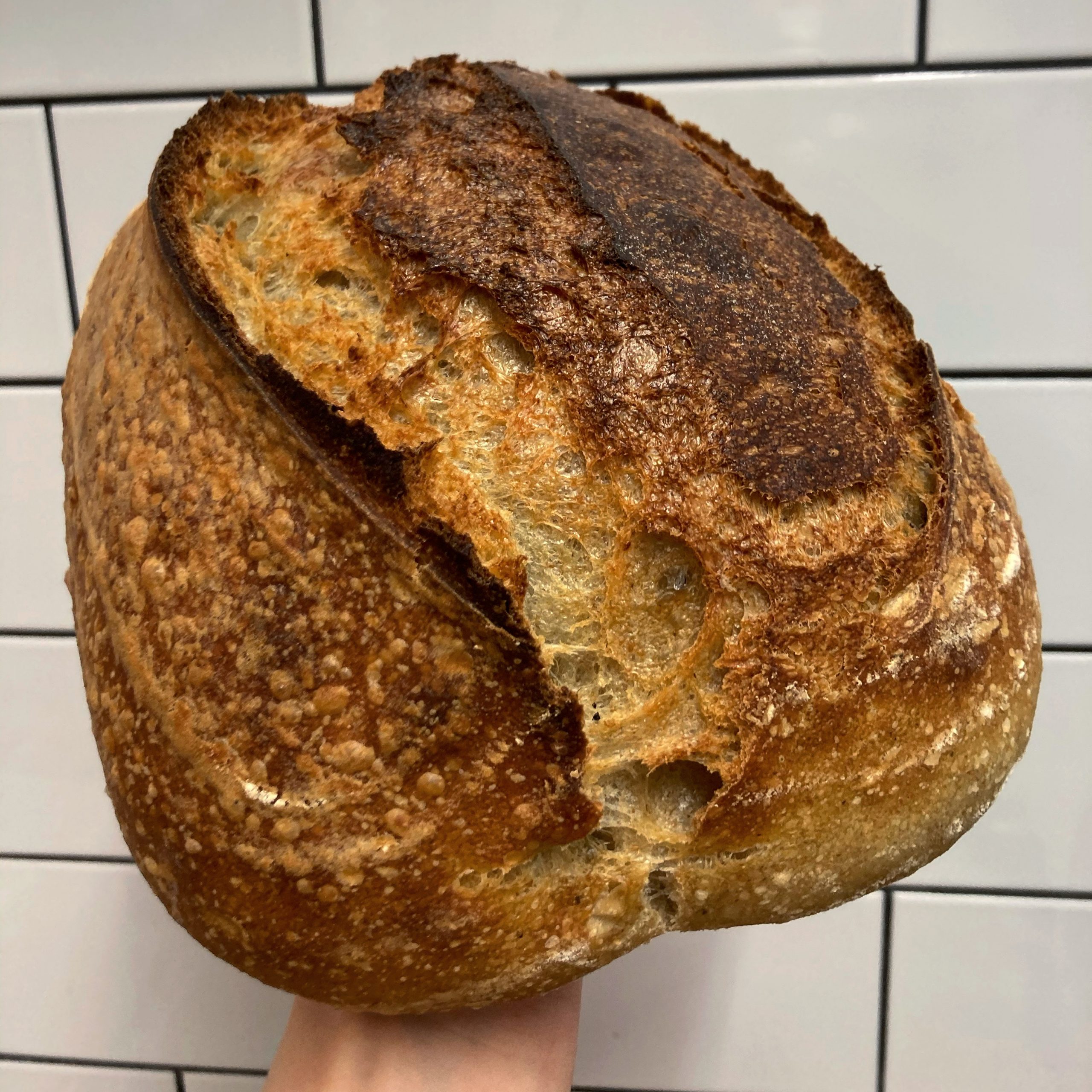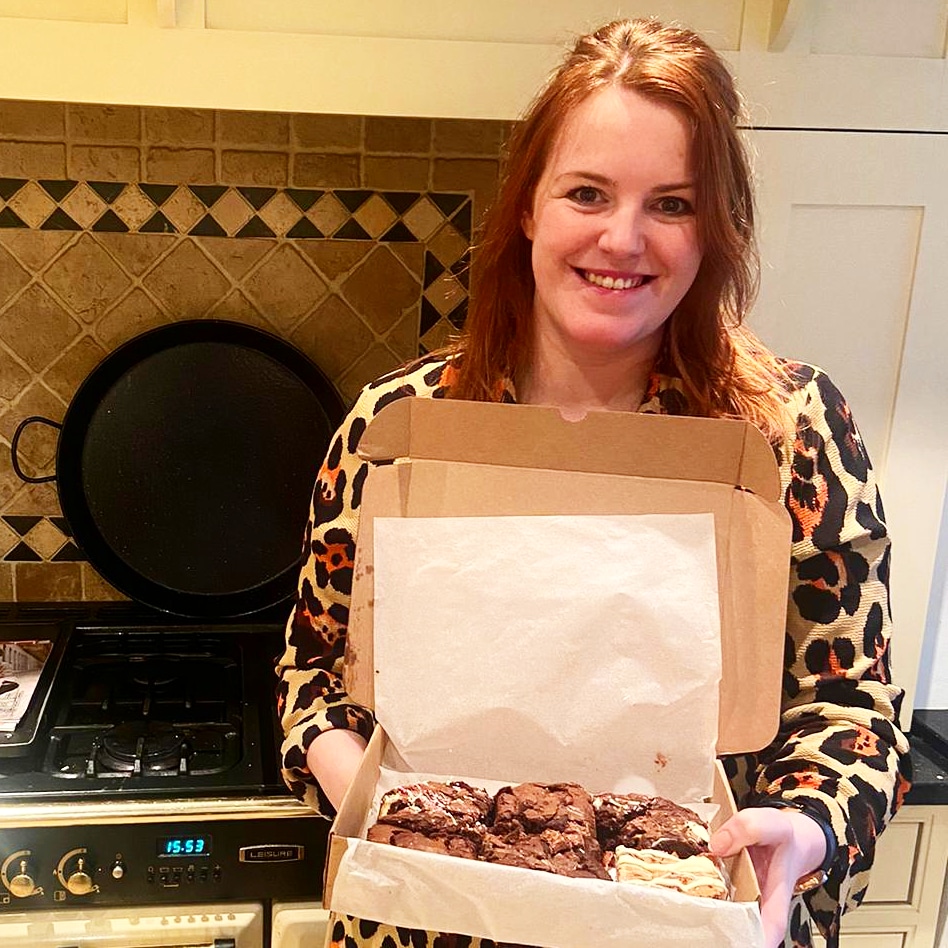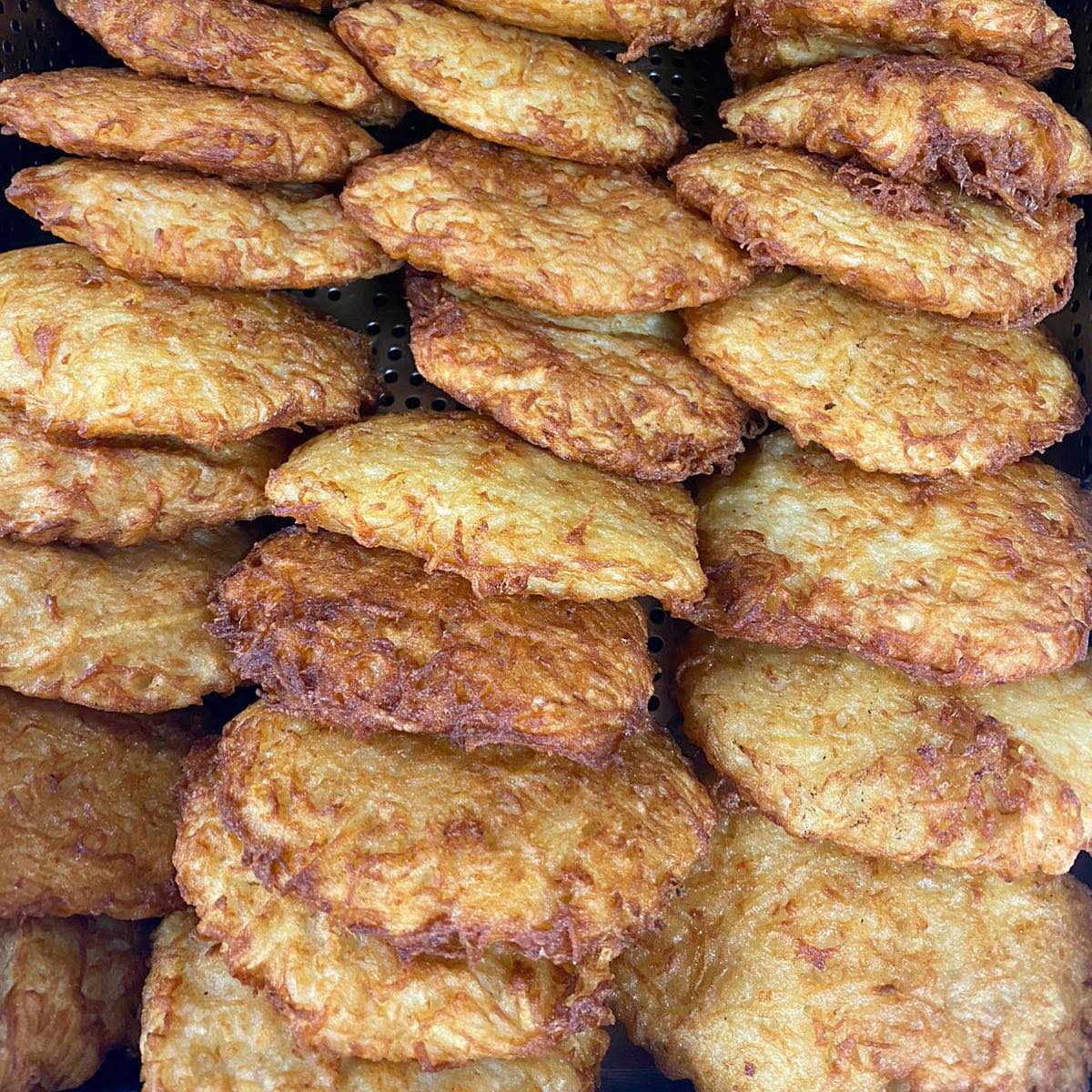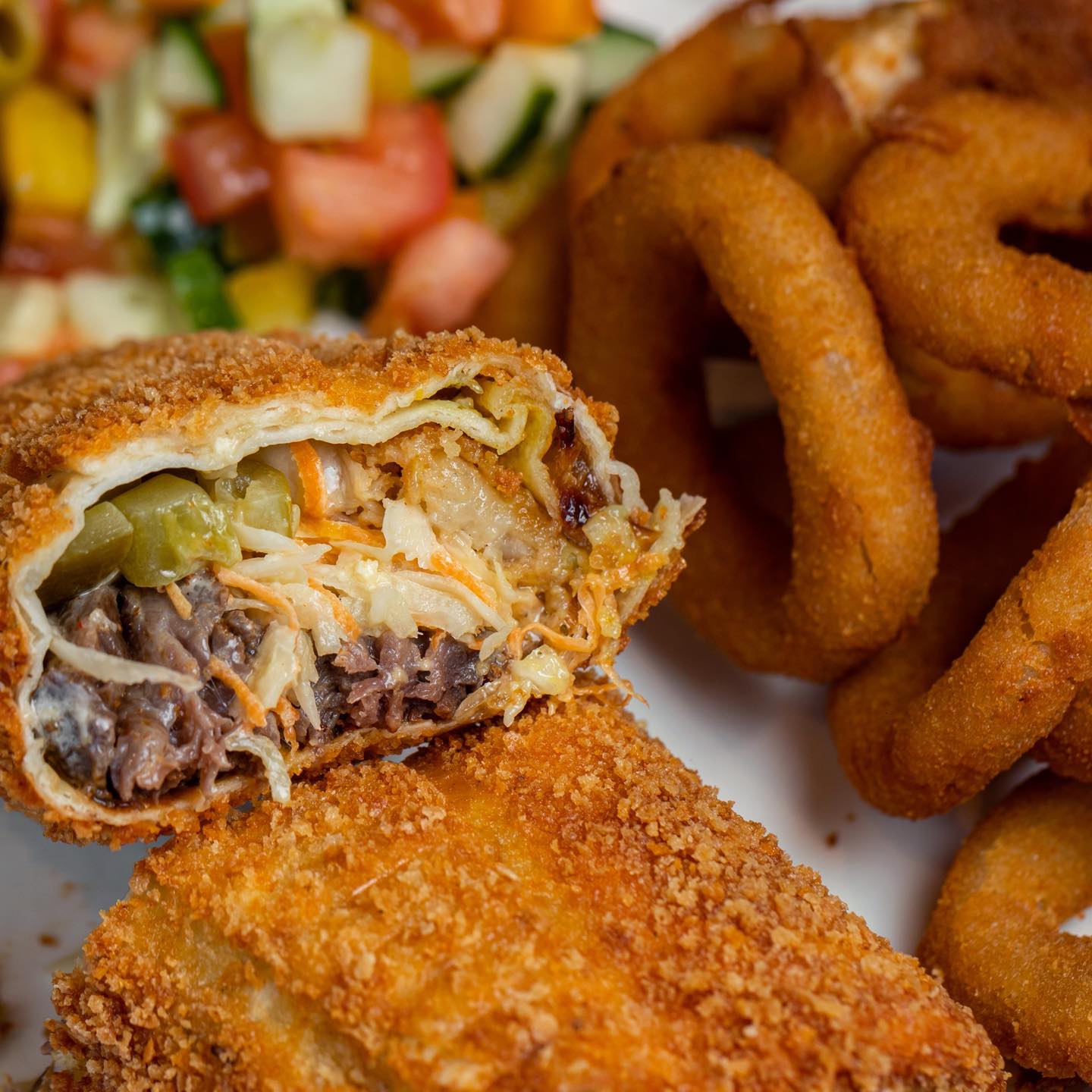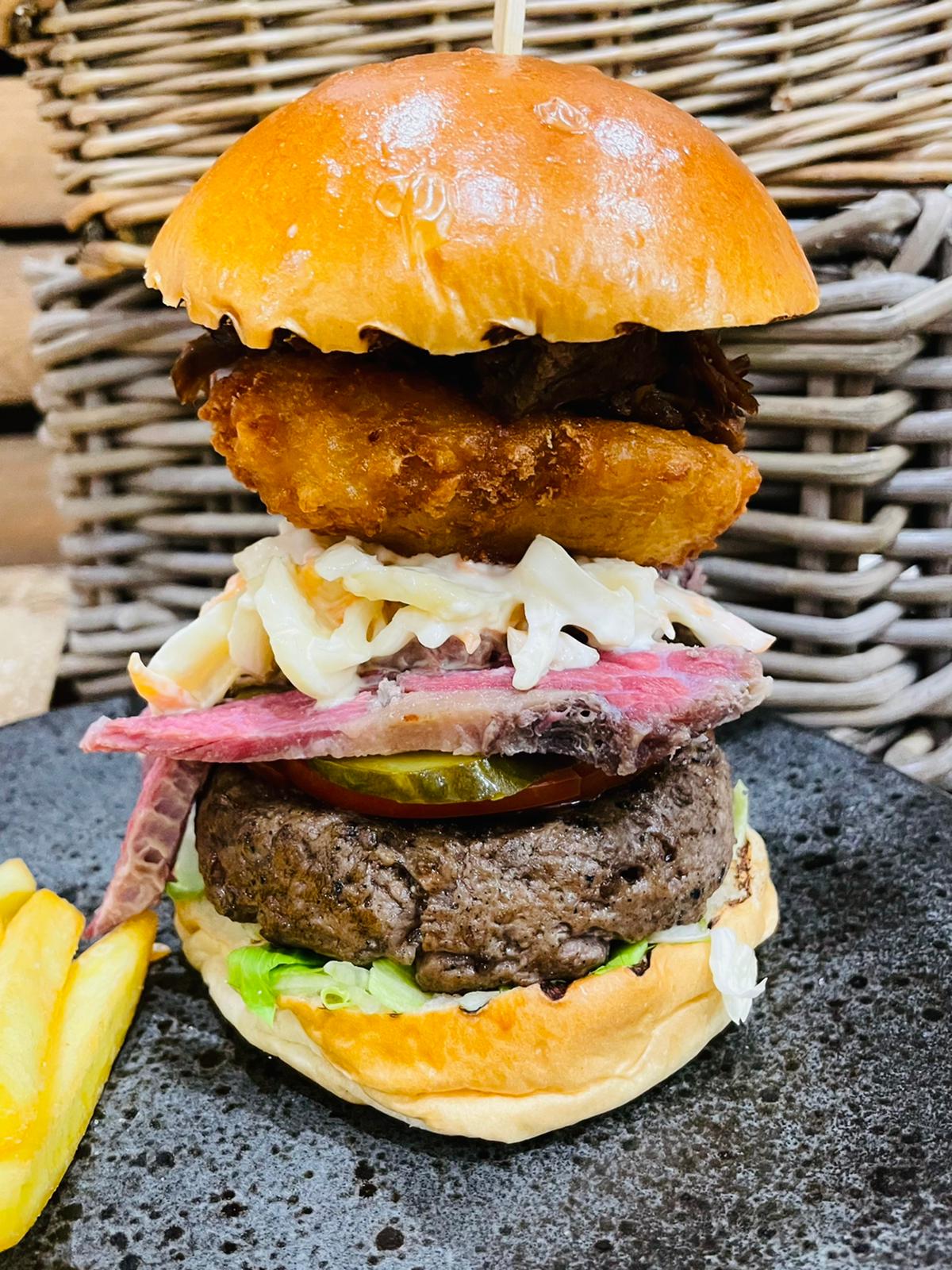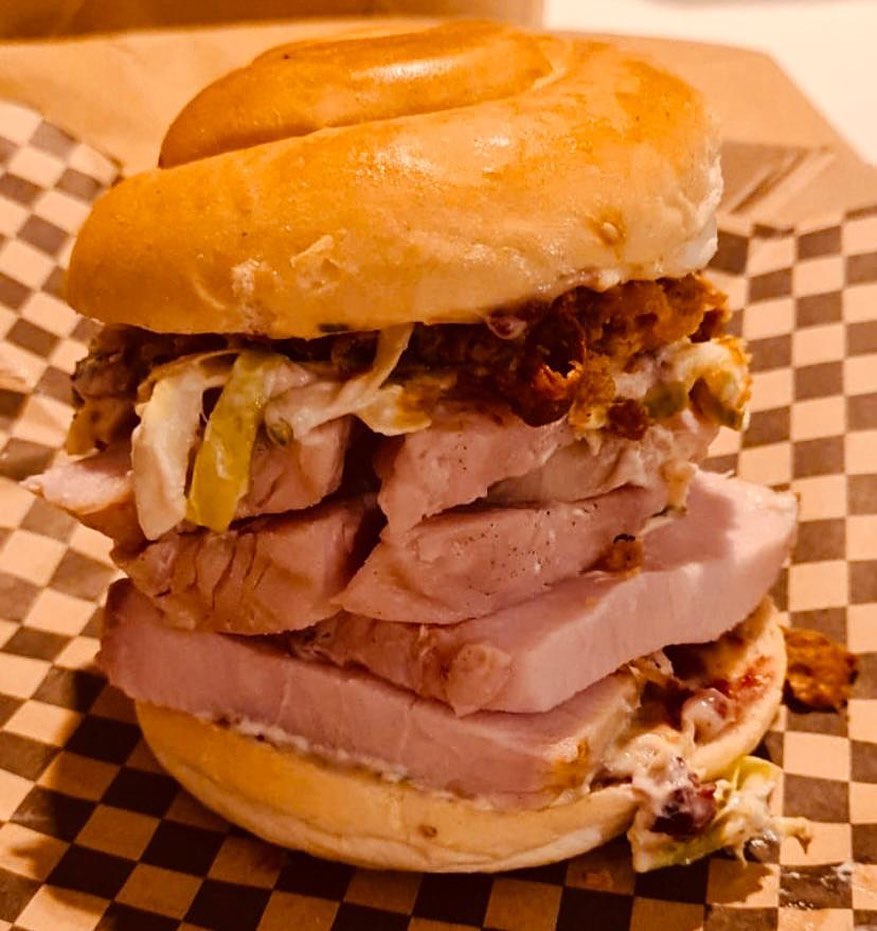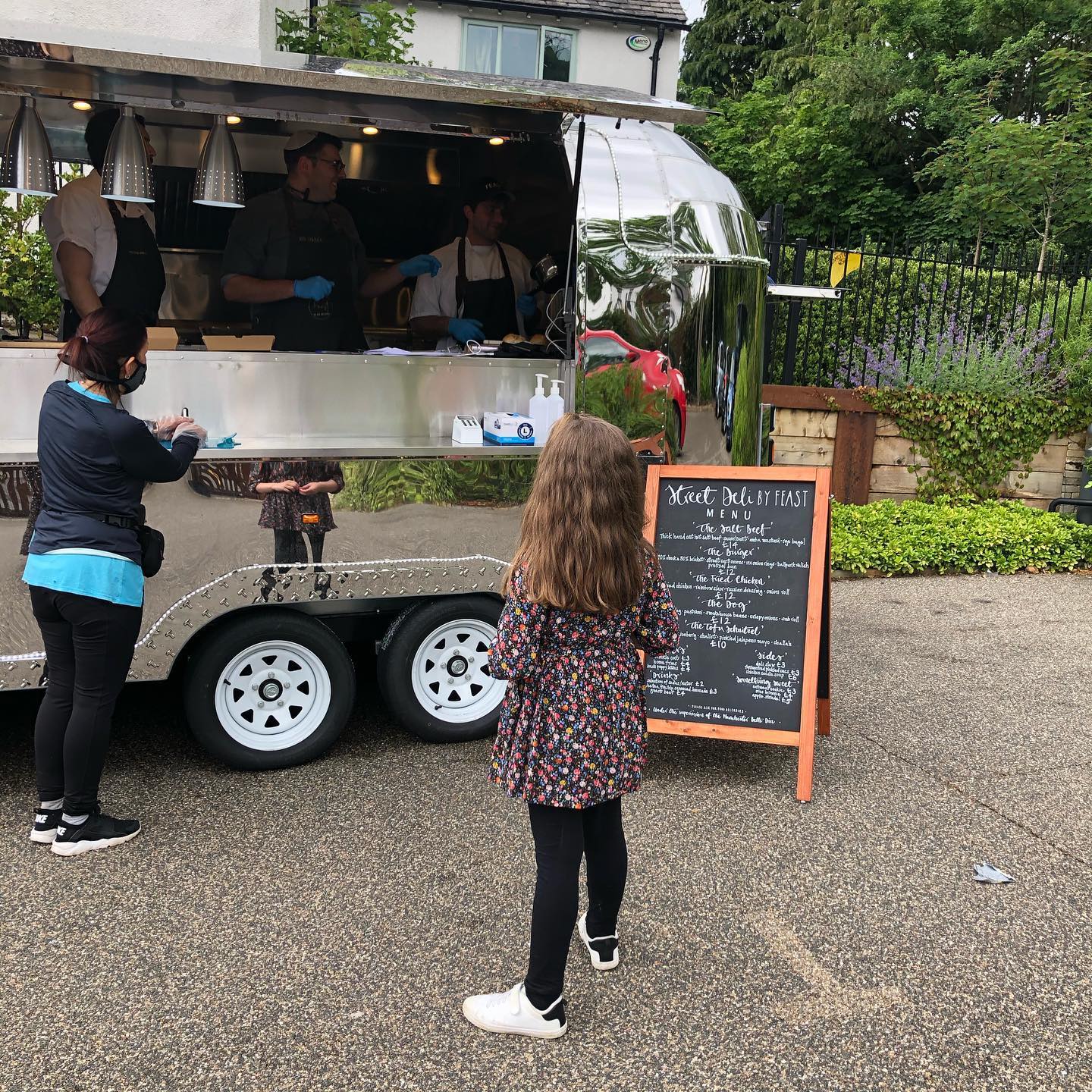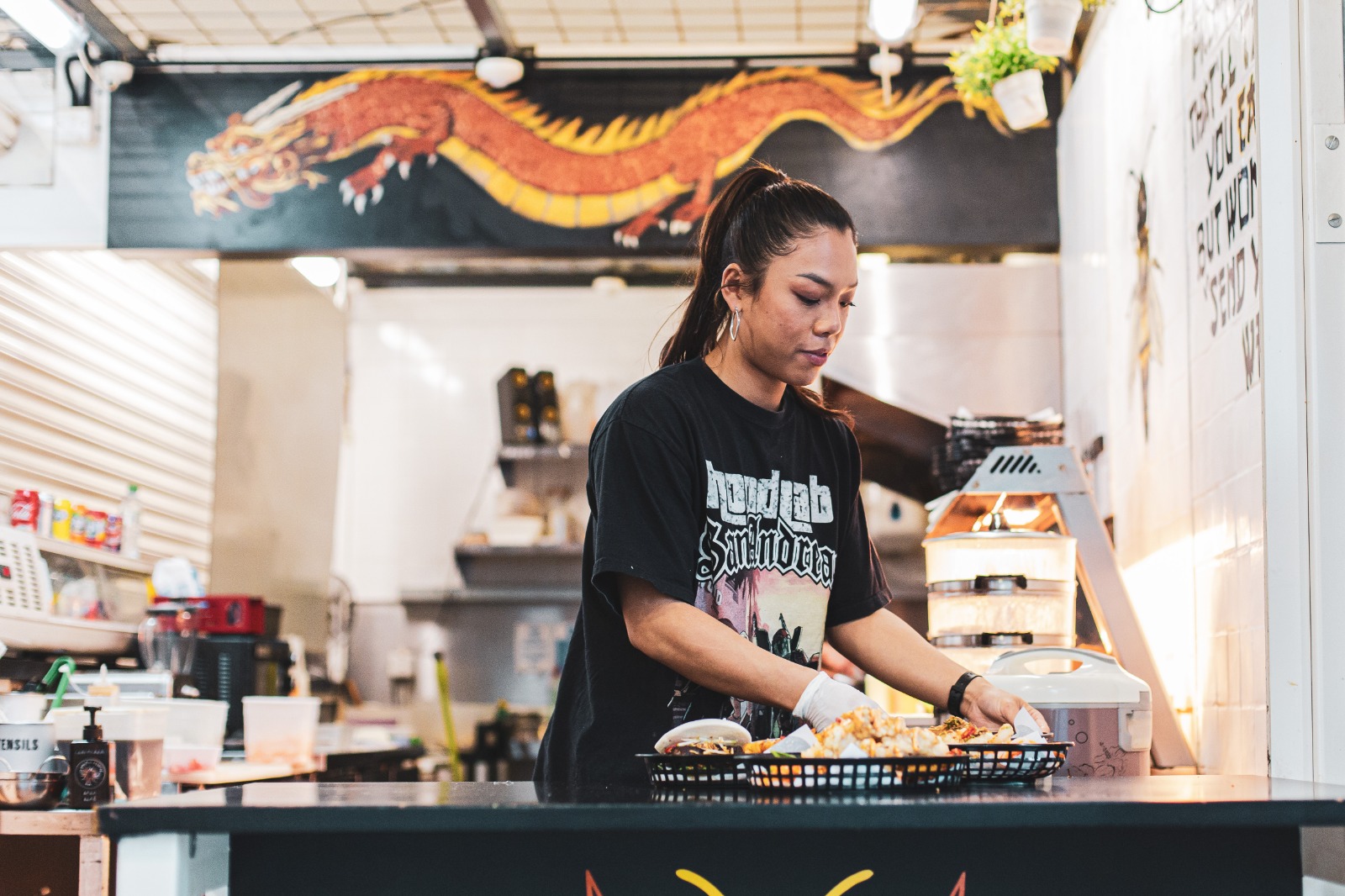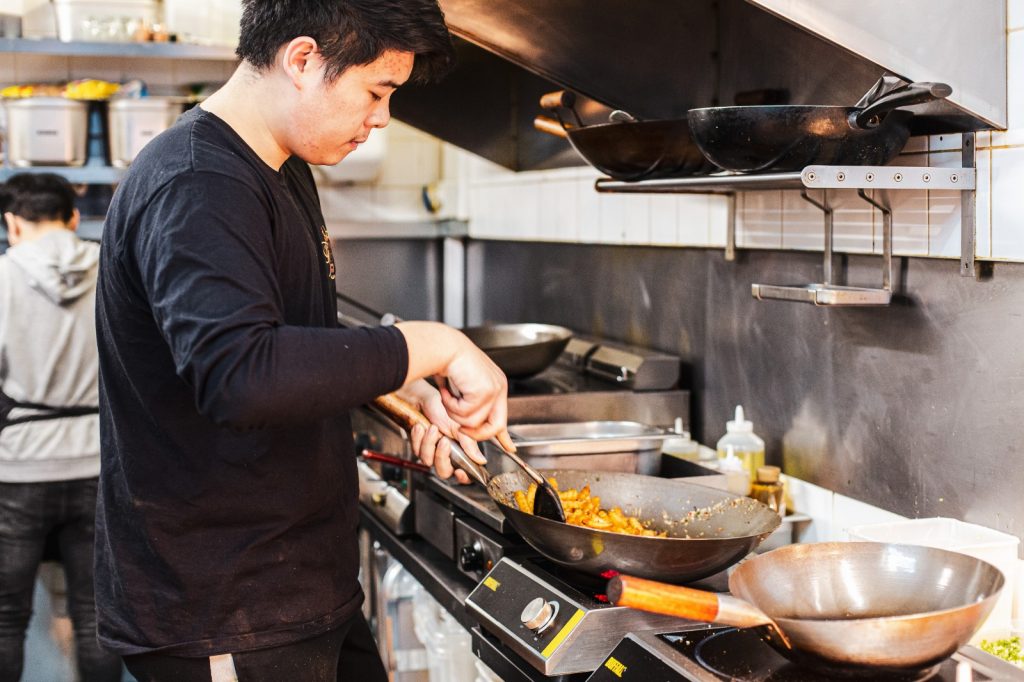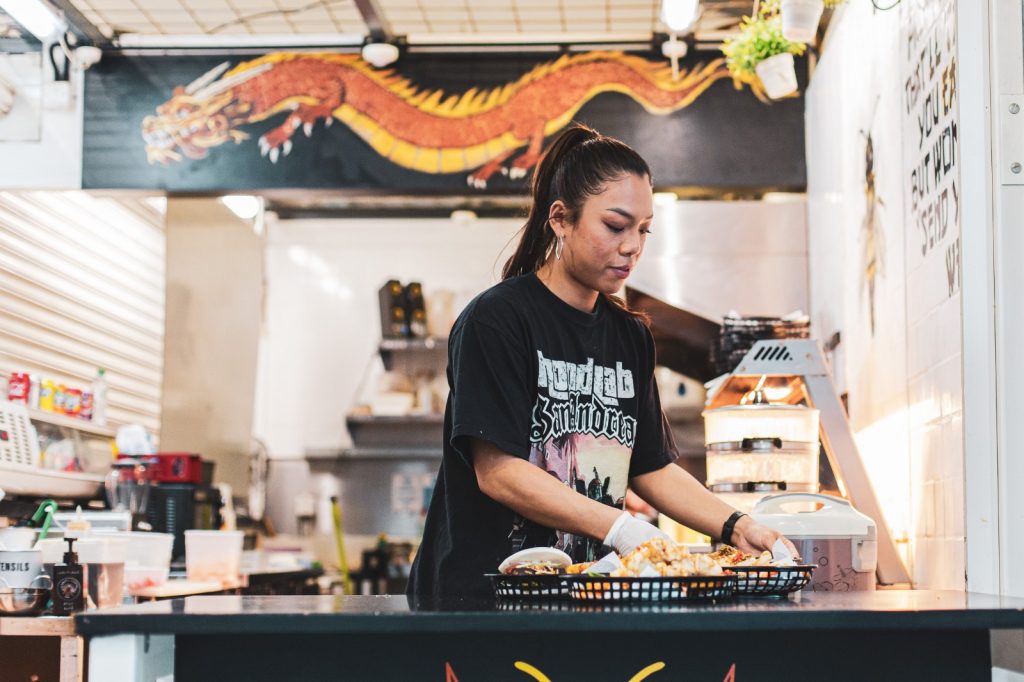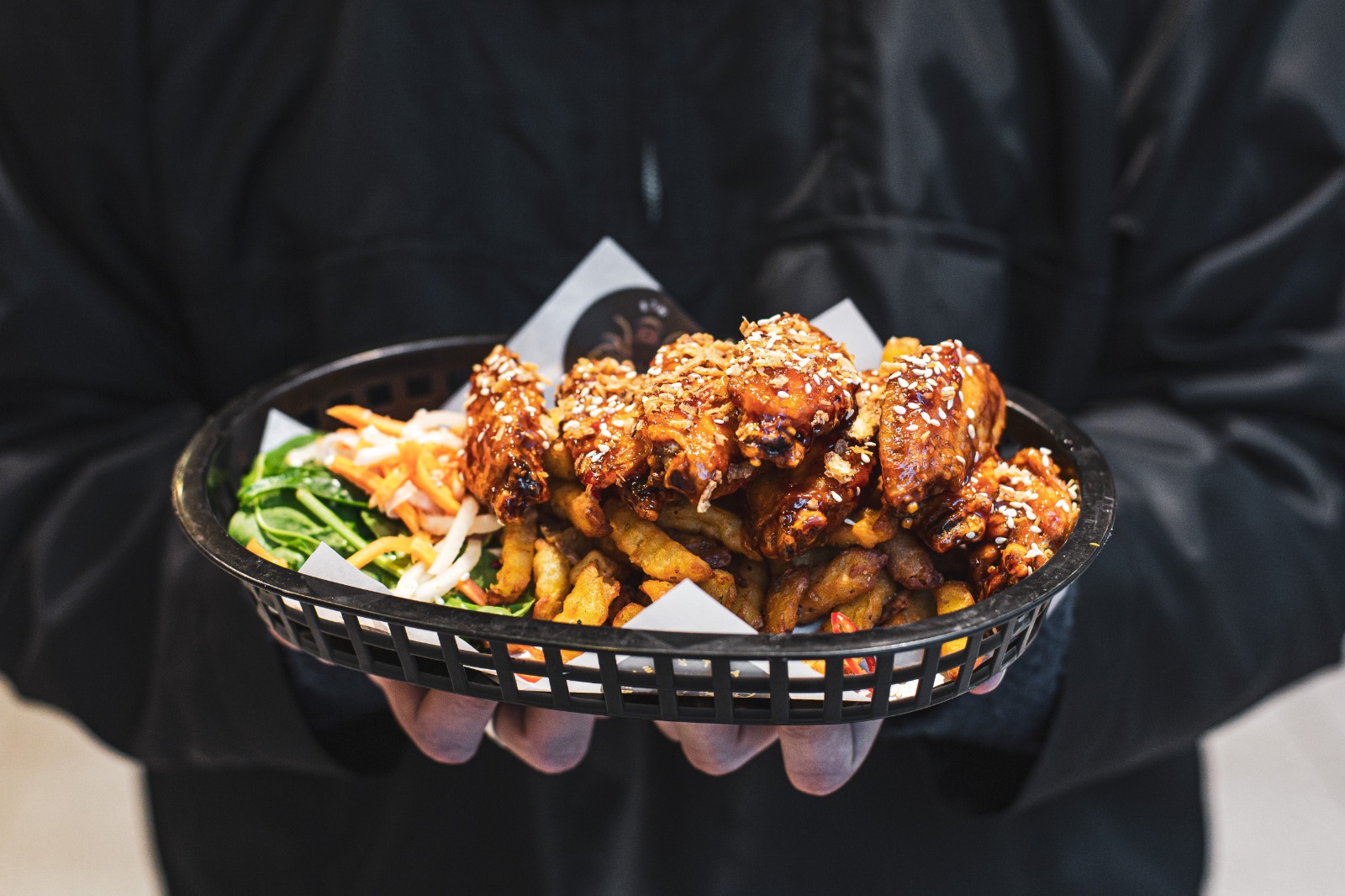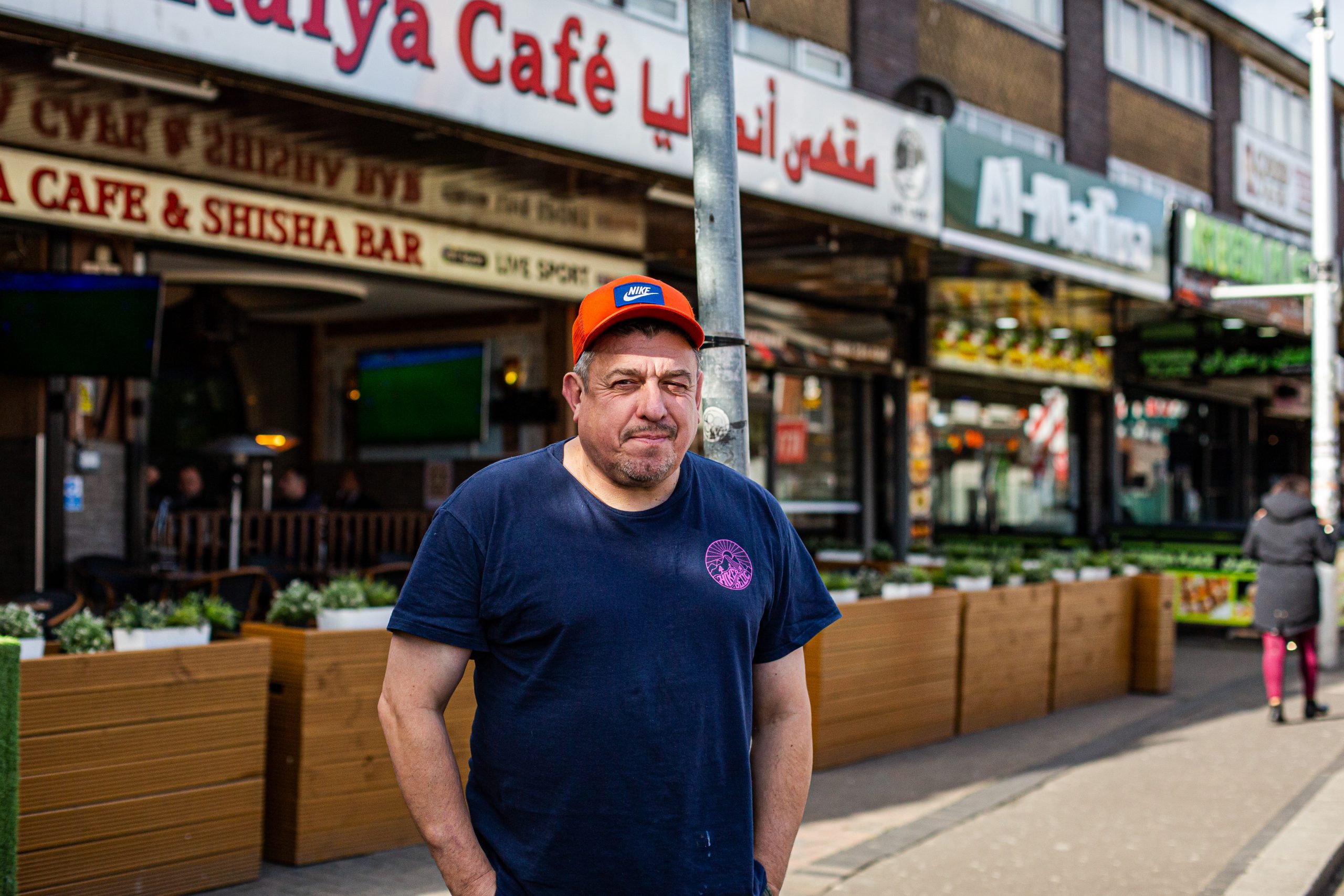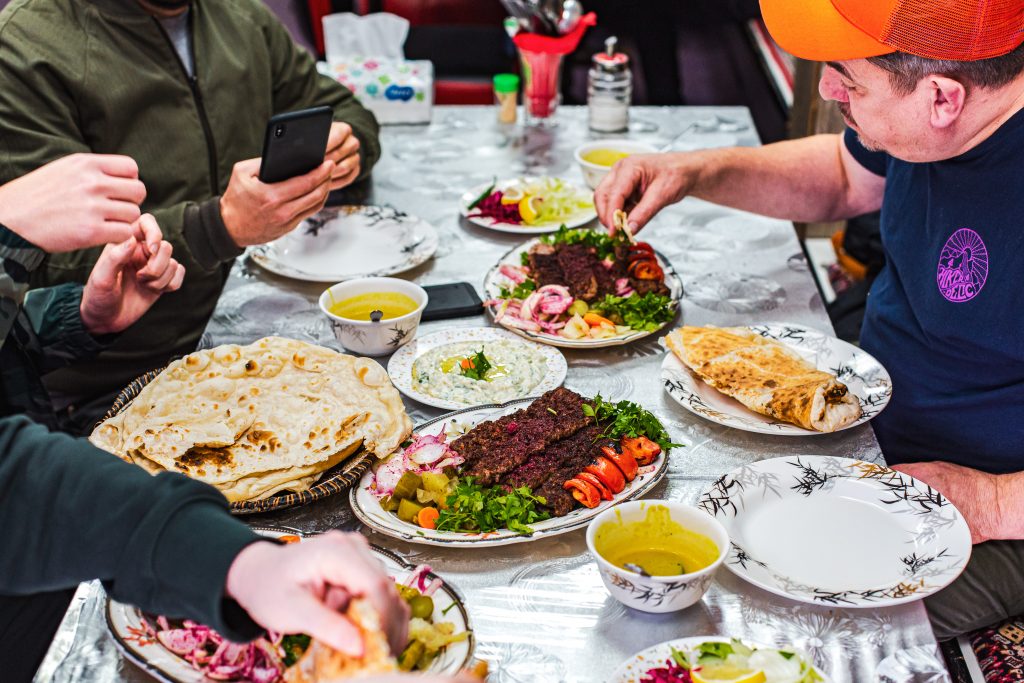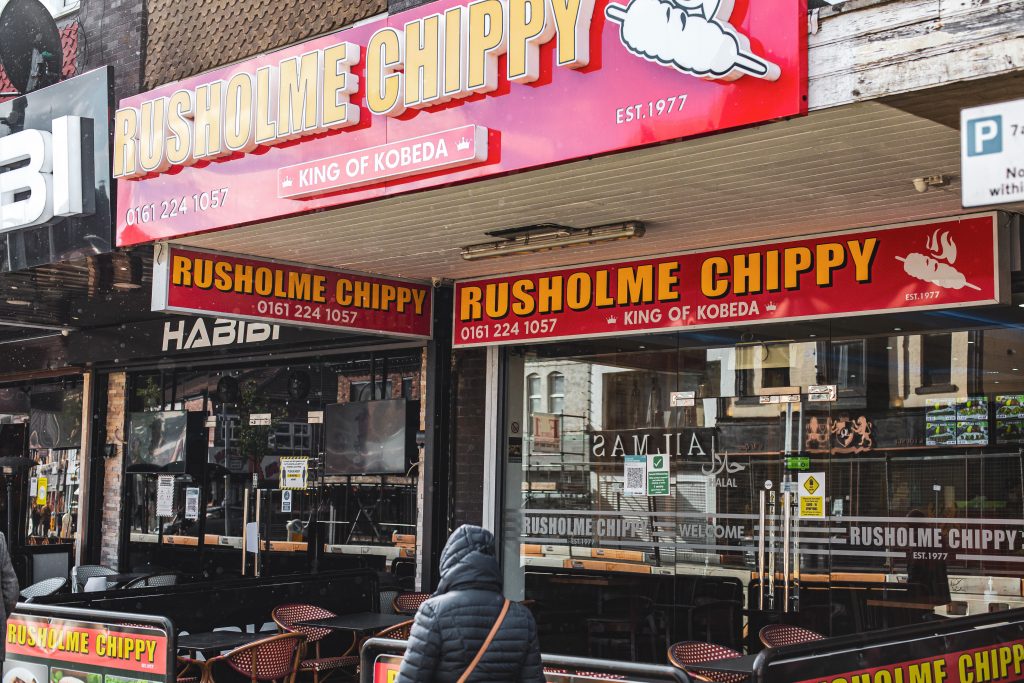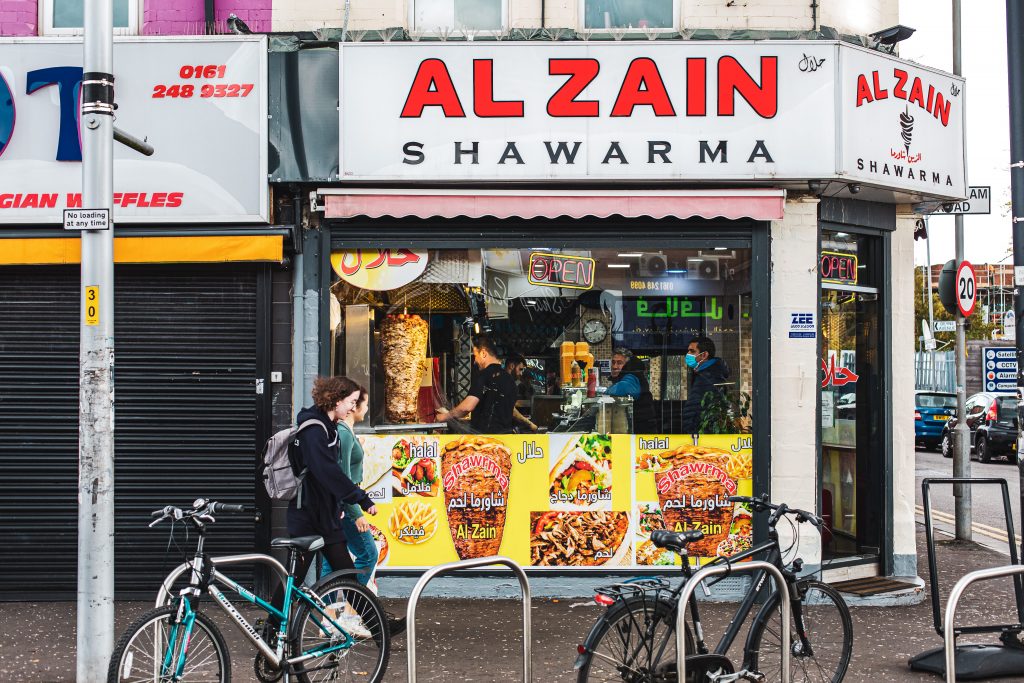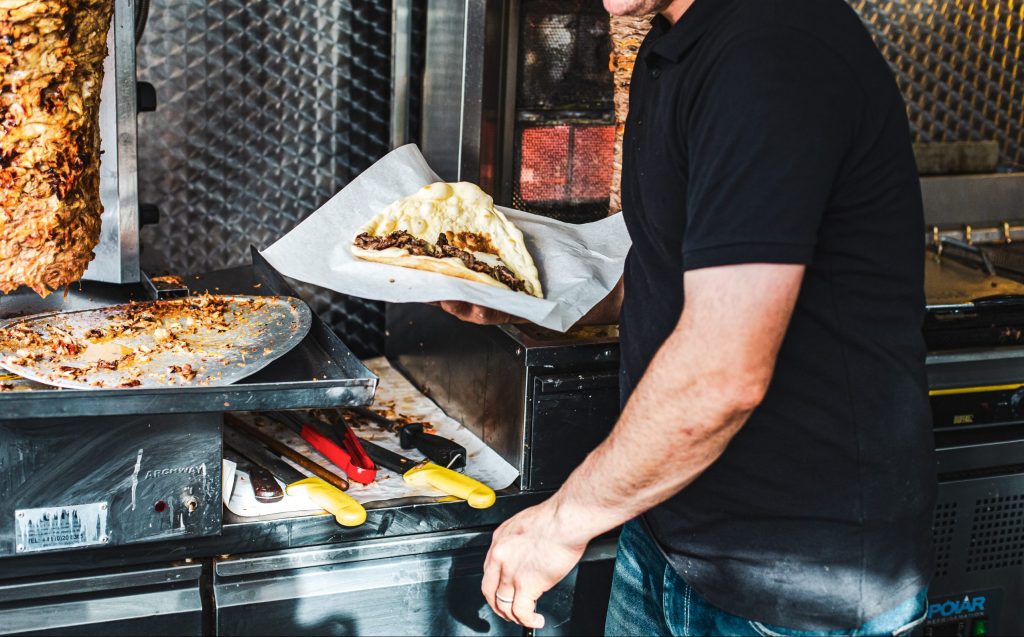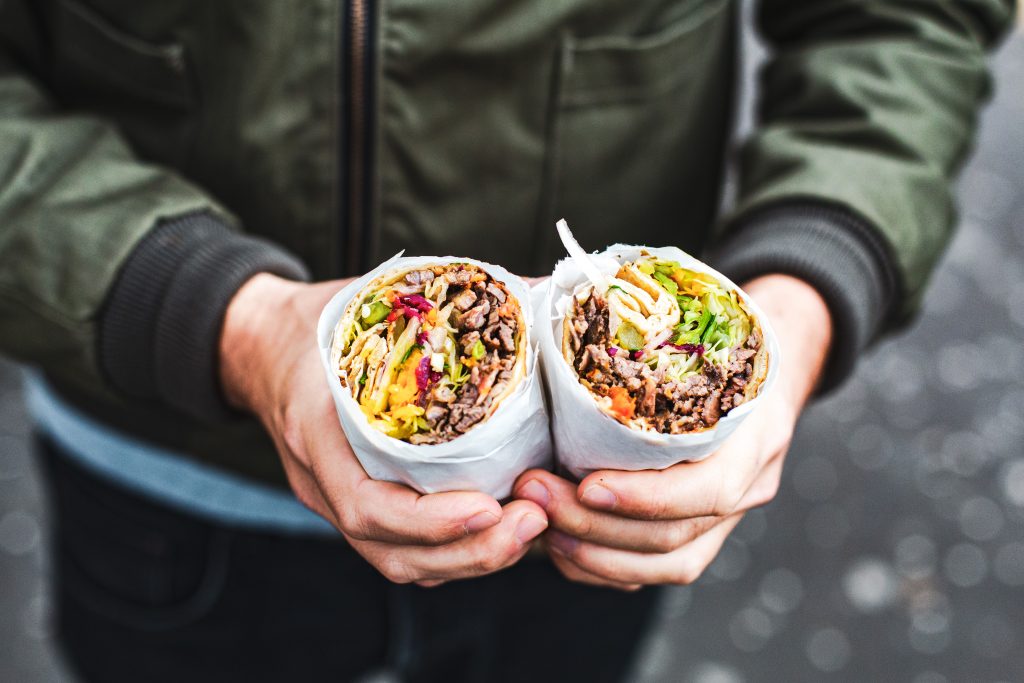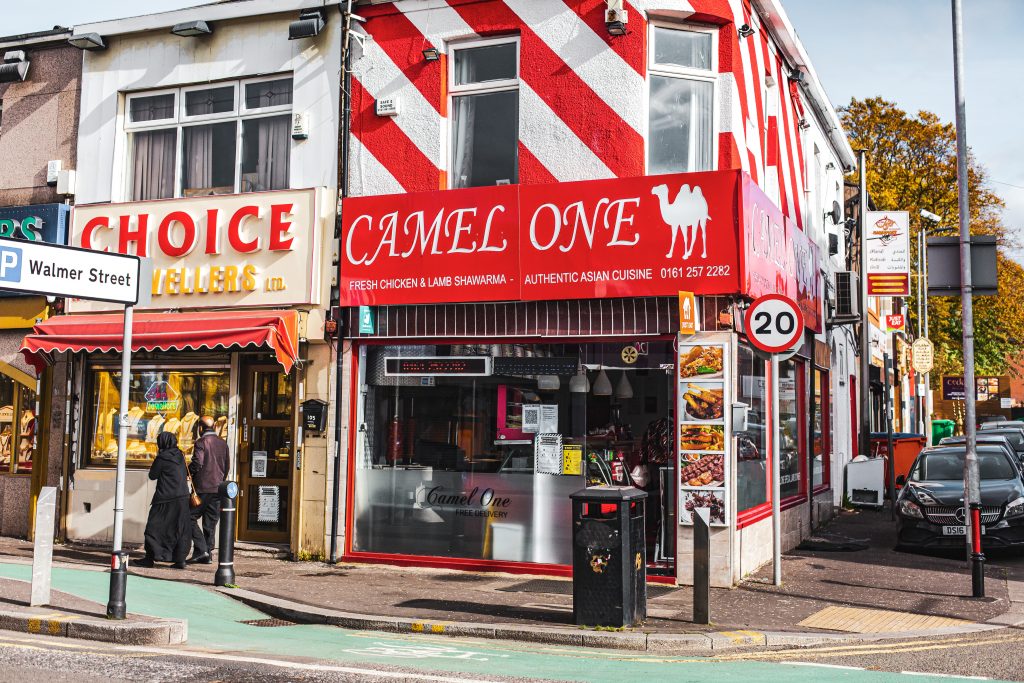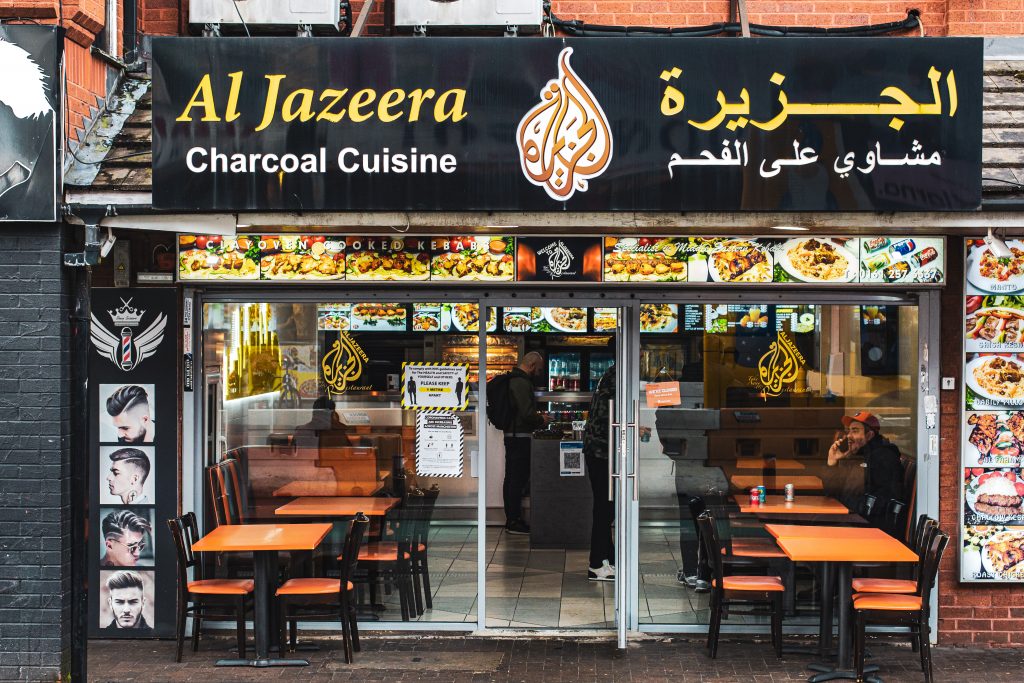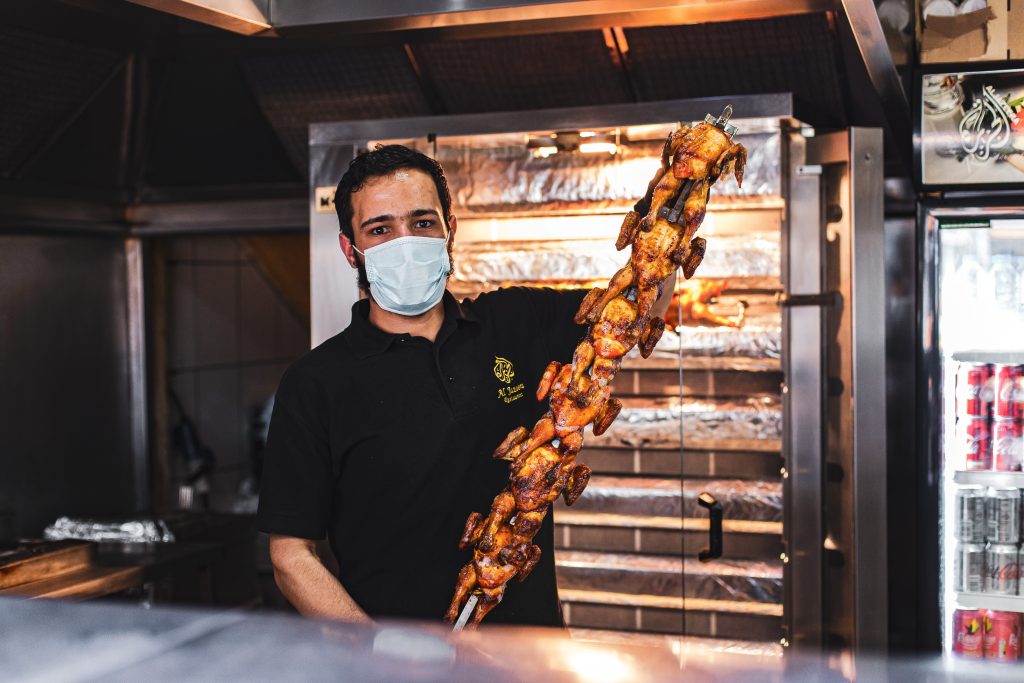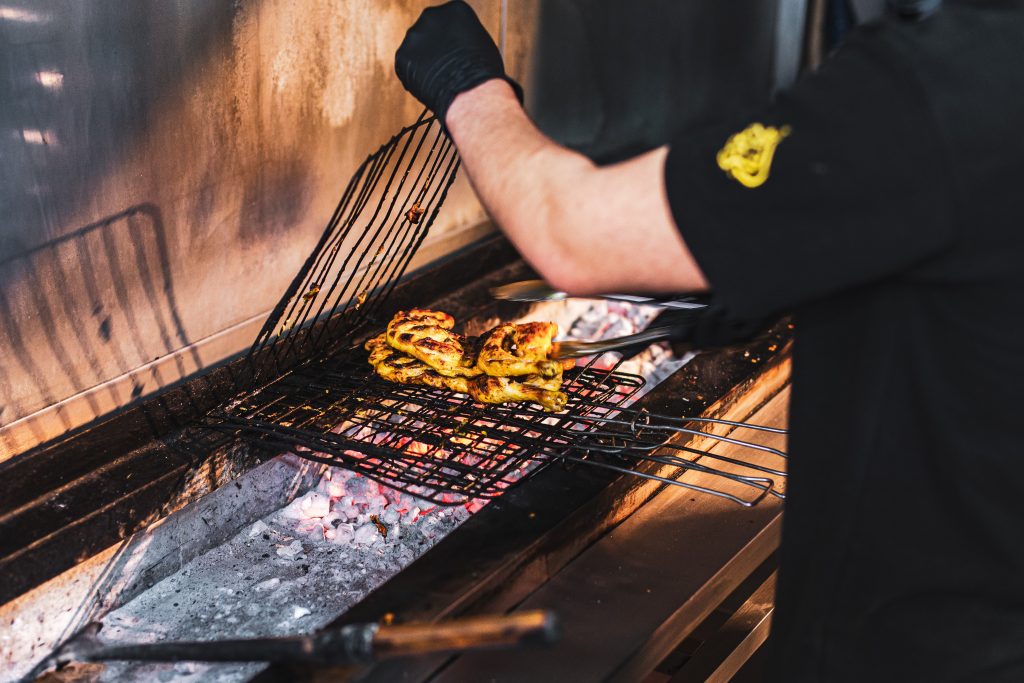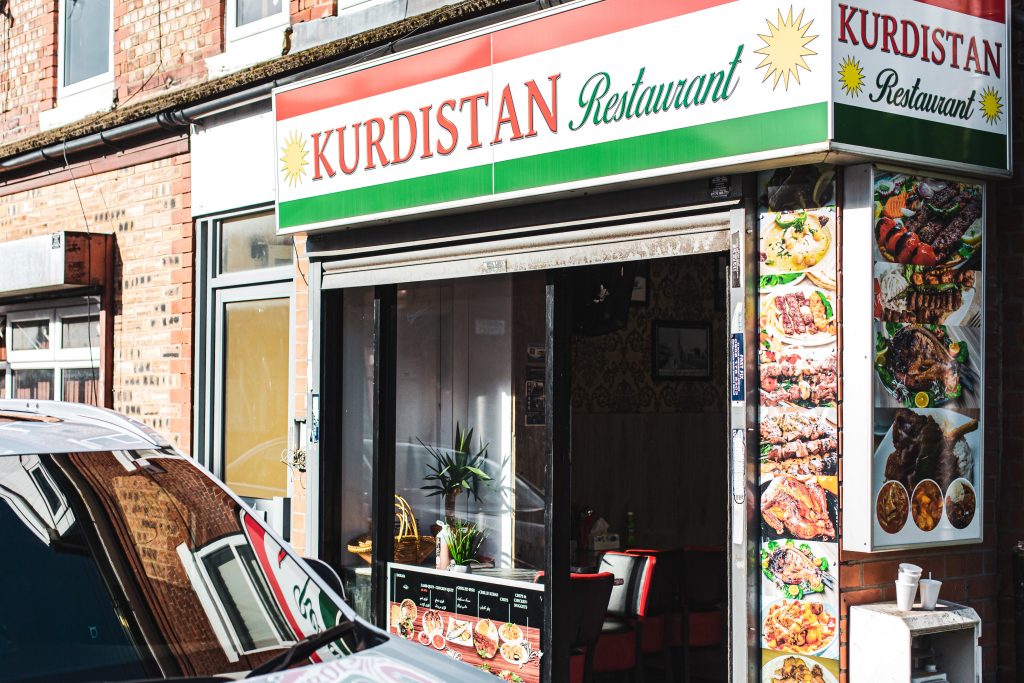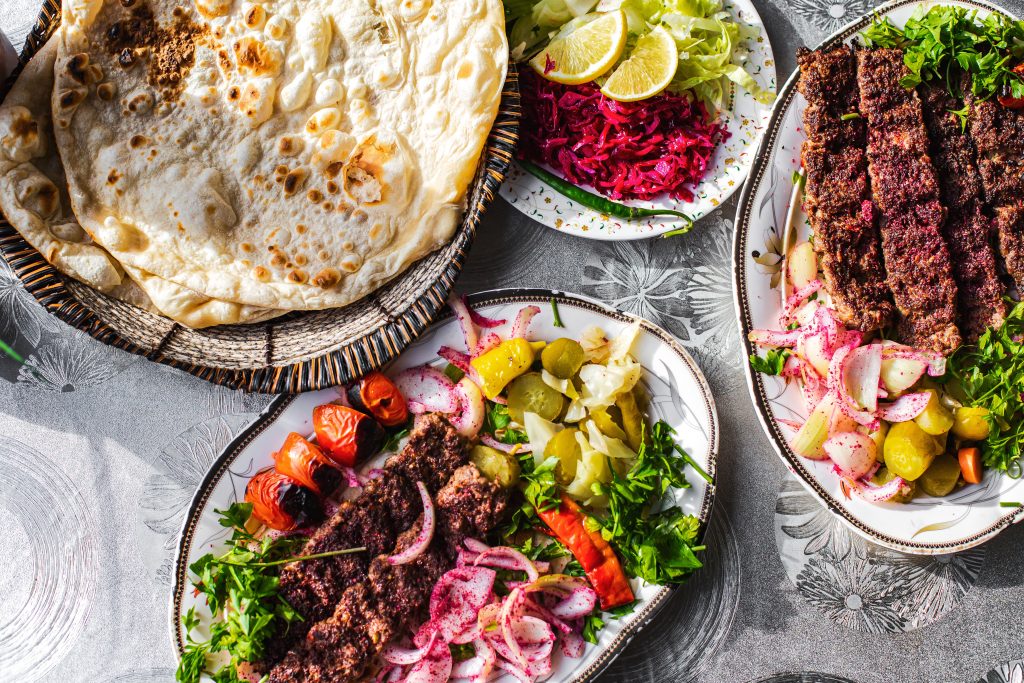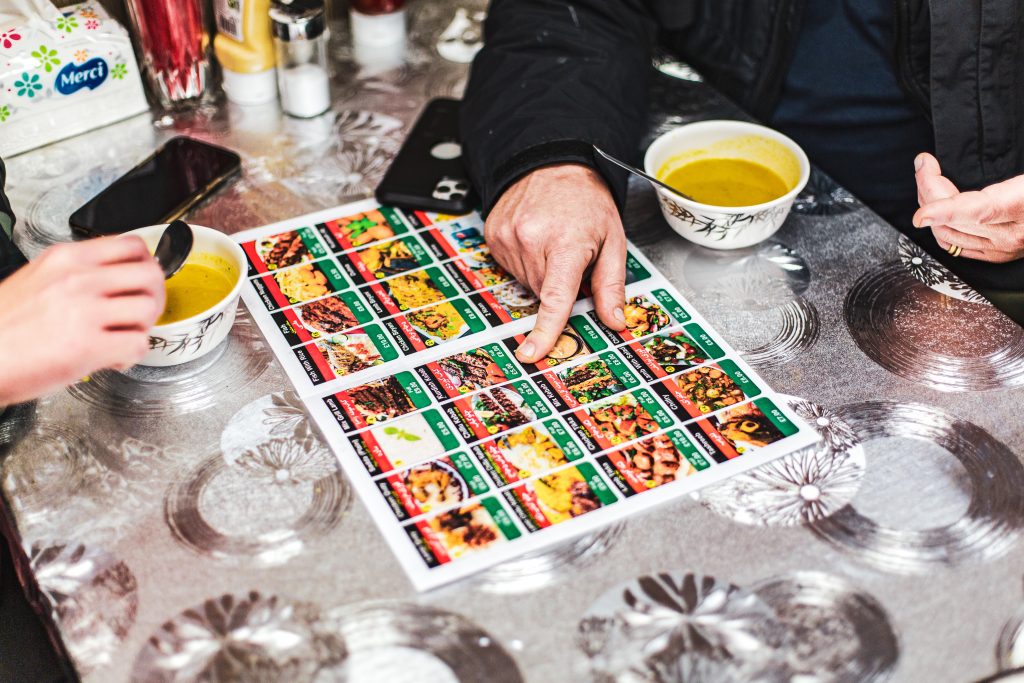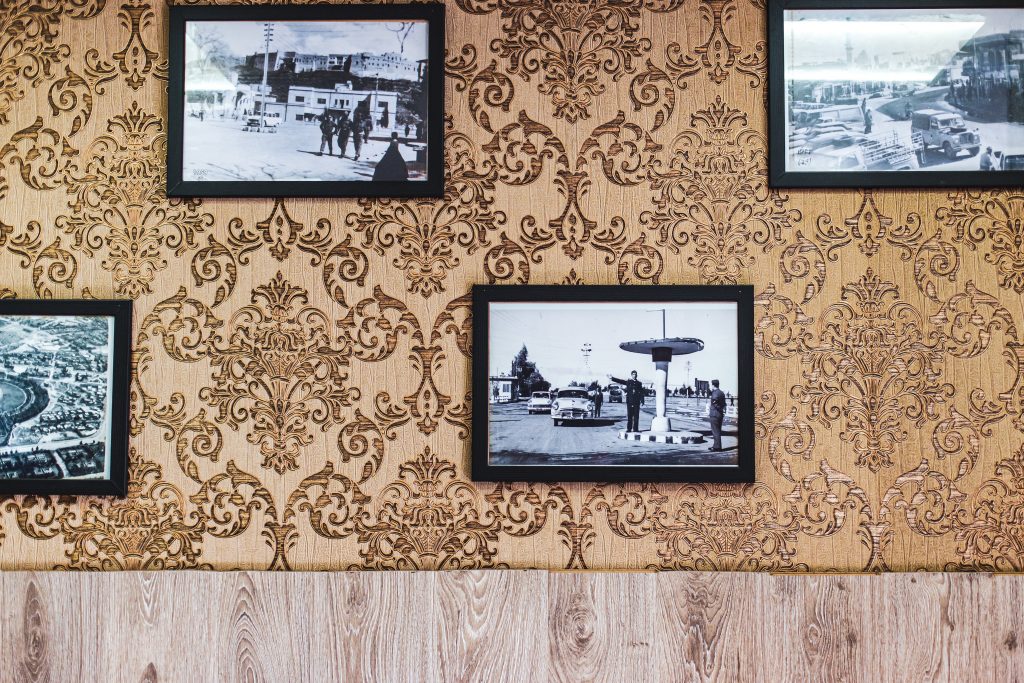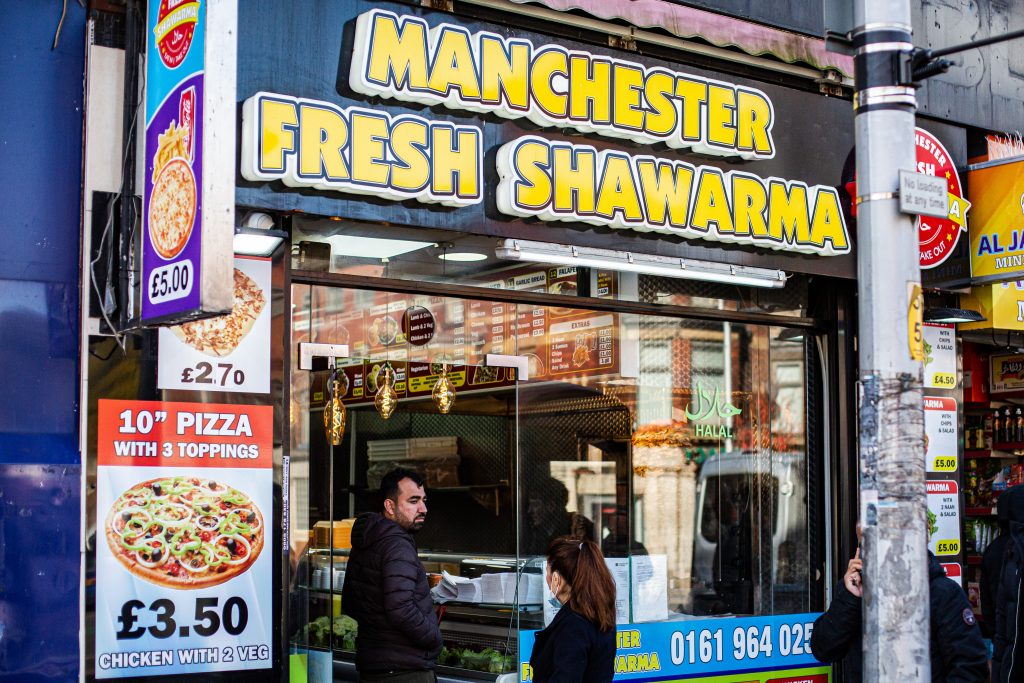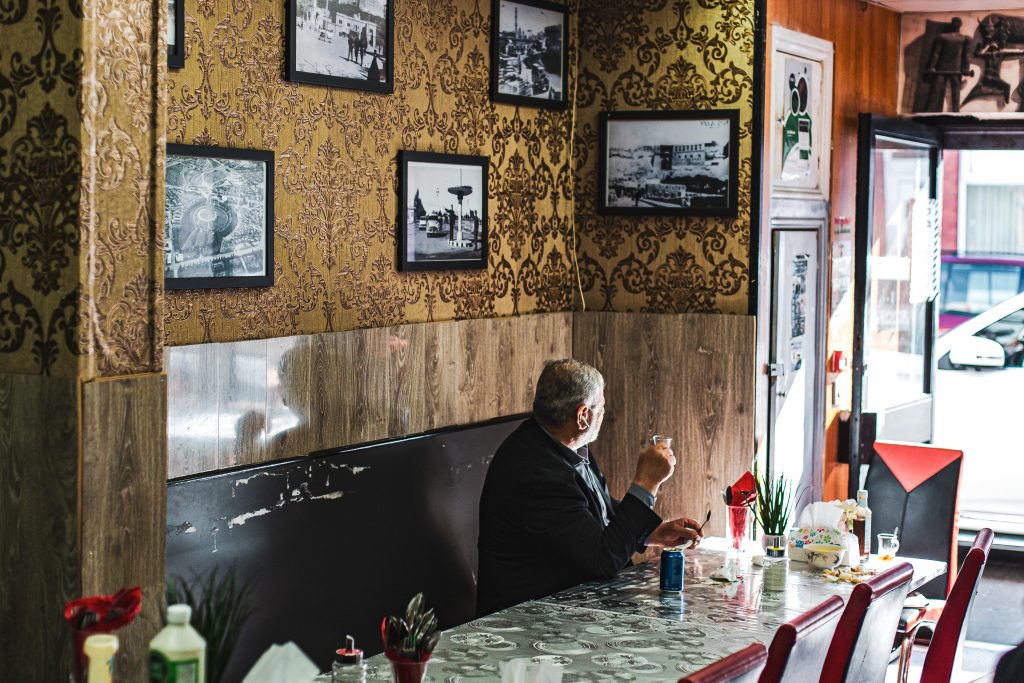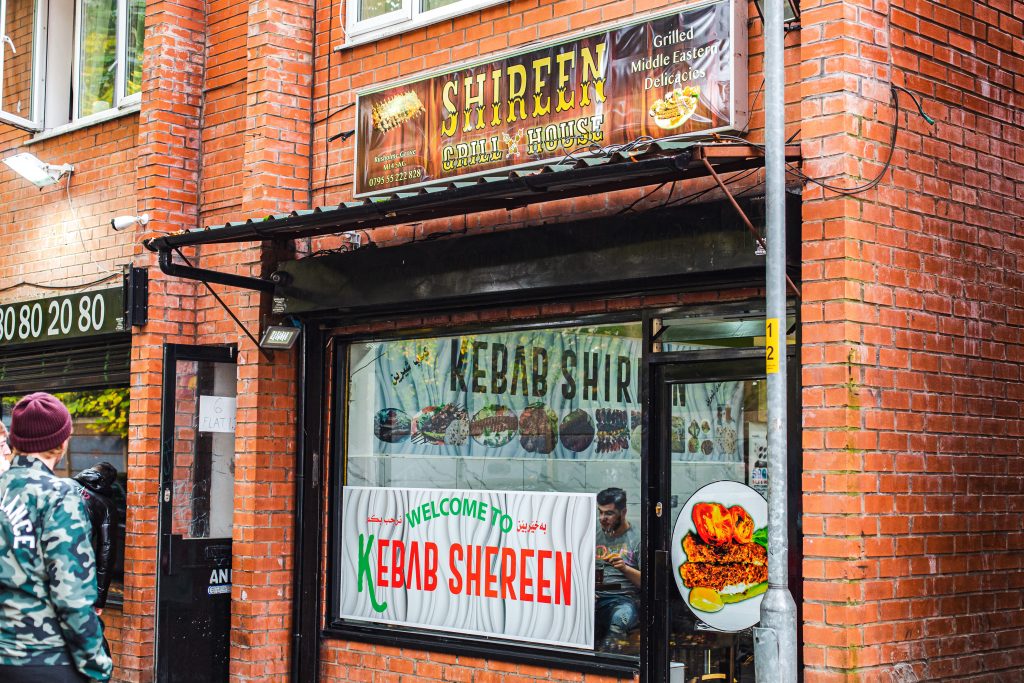“Gabagool? Over here!“
– Silvio Dante
Comfortable Italian leisurewear and cured meats. Tony Soprano and his crew may not have known it when they debuted on our televisions back in 1999, but they were actually pre-empting the ultimate aesthetic for global pandemic life over 20 years later. Now, almost a decade-and-a-half on from everything fading to black in New Jersey, Tony and the lads are enjoying a nostalgia driven renaissance through food and social media.
And part of said renaissance is happening right here in Manchester, at Bada Bing.
For those of you familiar with the show (for those of you who aren’t, fuck’s tha matter wit’ you?) no, North Jersey’s premiere gentlemen’s lounge hasn’t opened up an offshoot in the North West. Instead, Manchester’s answer to Bada Bing is serving some of the best sandwiches in the city right now.
Born out of furlough binge watching and a borderline obsession with slapping fillings between slices of bread, couple Sam Gormally and Meg Lingenfelter launched their hole-in-the-wall hoagie hut back in February, taking up residence in the kitchen of Piccadilly pub B-Lounge. In just two short months they’ve already had more business on the street than a North Jersey capo, with pre-orders selling out in rapid fashion and ravenous customers flocking to their bolthole on the corner of Piccadilly. Now, they’re set to move into a more spacious setting, suitably in Ancoats, Manchester’s one time Little Italy, as they level up their operation.
“This was just supposed to be a bit of fun while we were furloughed,” explains Sam, as we plonk ourselves on a couple of well worn Chesterfields in the rear of B-Lounge’s bar area. The mahogany coffee table separating us hosting a plate of Gabagool and in-house giardinara that would be enough to generate effusive hand gestures from Silvio and Paulie were they to drop by during their weekly collections.
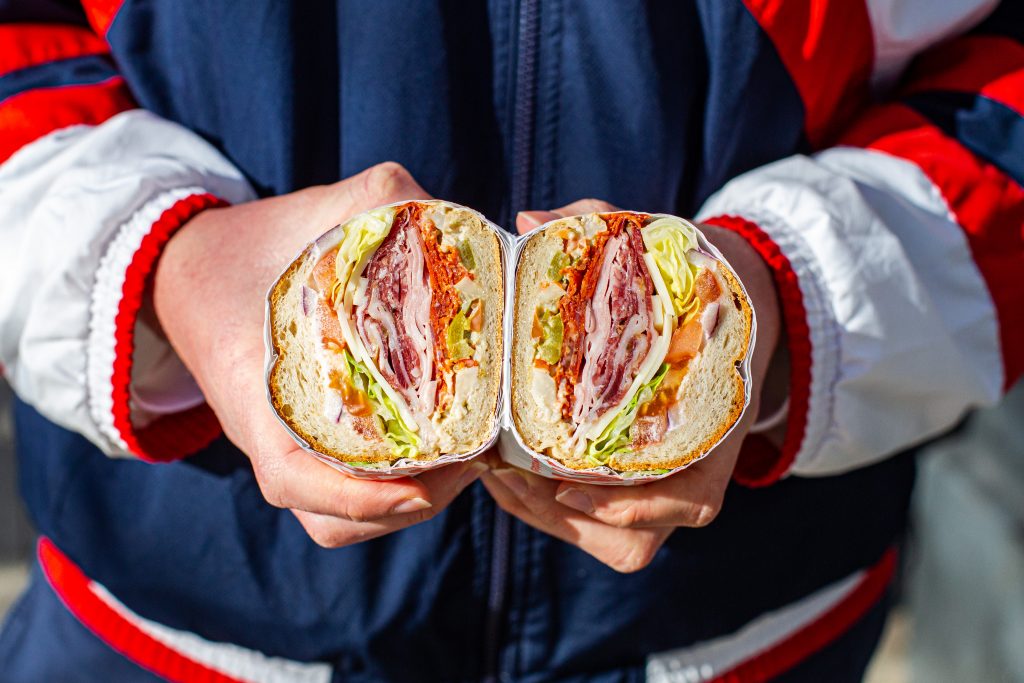
“Meg and me said ‘ah let’s just do that for a laugh’ and it’s ended up snowballing. There was obviously a gap in the market for these types of sandwiches and people are loving it.
“We developed the menu over about five weeks. We were originally just gonna sell the sandwiches to our friends cos we’re all into The Sopranos, but then it just got bigger and bigger.
“Being such a small operation has been good for us. People have loved coming to that window, telling us that it feels a bit dodgy, they feel like they’re in the know and it’s a little secret spot. Even in Ancoats it’s not gonna be a shop front, it’s going to be a little dark kitchen but then eventually in the summer we’re hoping to have a little courtyard outside.”
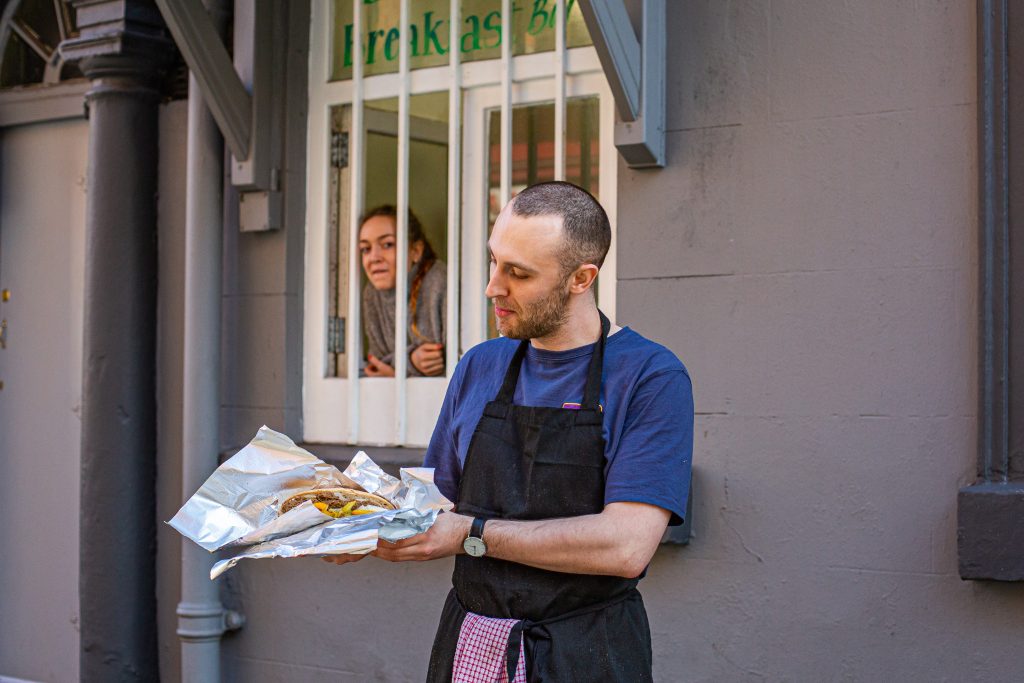
But, given that Manchester has long been home to one of the UK’s largest Italian communities, dating back to 1865 when thousands of rural villagers left Italy and settled primarily in Ancoats, in the Roman Catholic parish of St.Michael’s, it’s quite a stark surprise that the city hasn’t been more resplendent with Italian delis or sandwich shops over the years. Such a lack of representation on this front is something that was not lost on the Bing team when they planted their flag in Piccadilly a couple of months ago.
“I’m massively surprised it’s never really been done before. I’ve lived in Manchester for seven years now and I don’t understand why there’s not more Italian delis. There’s a couple, like Salvi’s but there’s not really anything like that and I don’t understand it because there’s such a huge Italian community here.“
“Ya know how hard it is to have a sausage and peppers without a cold one?!“
– Christopher Moltisanti
Of course, when it comes to Italian Americans, especially on the East Coast of the US, delis and sandwich shops are their second homes. Much like the sidewalk and backroom of Satriale’s was always populated with Chrissy, Benny, Patsy and maybe a visiting New York consigliere, playing cards and breaking balls over prosciutto and provolone, countless neighbourhoods across the five boroughs have longstanding hangouts, dating back generations but also proving wildly popular in the modern day. The camaraderie and community spirit, combined with heart stopping sandwiches as big as your head is something that Roman Grandinetti, owner of Regina’s Grocery on the Lower East Side of Manhattan, grew up around and has continued with the deli he operates with his mother, of whom the establishment is named after.
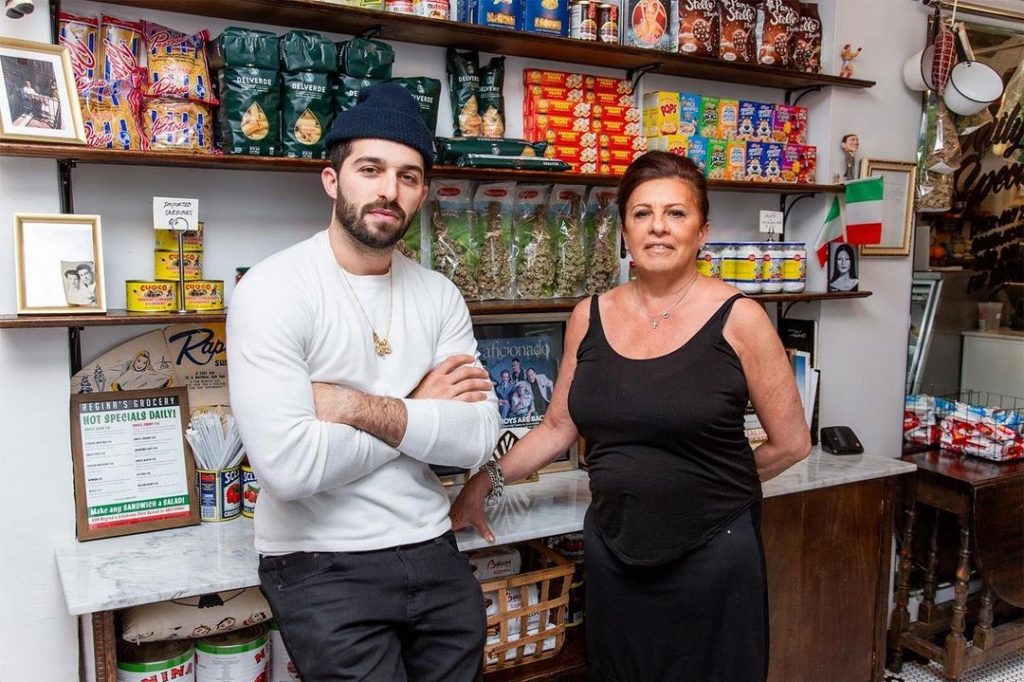
Growing up in Brooklyn, Roman was immersed in the deli/social club culture, but as time wore on, saw it slipping away. After successfully launching his own marketing agency and, y’know, casually working with Travis Scott, Bob Dylan and Alexander Wang among pretty much everyone else in the fashion and music industry, he returned to his roots, setting up shop with his mother on Orchard Street in the LES. And for Roman, the sense of community is what drives his passion behind Regina’s.
“We built what the neighbourhood needed. Everyone needs a place to go. The food being good is a bonus. I felt as if we were losing these places in NYC. The guys were getting older and closing up. So we built this to keep it going.
“One hundred percent the place is for family and friends. Get out of the house and have a place to go always.”
A few thousand miles west, in Los Angeles, Noah Holton-Raphael and his two childhood friends Jack Biebel and Max Bahramipour are representing their New Jersey upbringing at Ggiata – a former dark kitchen turned full blown deli sandwich joint launched in June of last year that evokes all the atmosphere of the sandwich shops the trio of best friends grew up around back east. In little under a year, they’ve become local heroes, with their trademark Italian sesame subs earning significant head nods not only from The Infatuation and Eater LA, but also Don fucking Draper himself, Jon Hamm, who even collab’d on his own charitable ‘Hamm Sandwich’ with the boys.
Much like Roman, they understand the value of the Italian deli as not just a place to pick up a bite to eat, but as the heartbeat of the communities they operate in.
“I think on a very rudimentary level, what makes Italian delis so important is their accessibility. Typically this is food that is made quickly and affordably. Because of this accessibility however, they tend to have a diverse customer base. At our hometown deli, you were just as likely to run into the guy doing construction down the street as you were your friend’s mom or dad grabbing sandwiches for a school function. In our neighbourhood the deli was always a melting pot, which made for hilarious and diverse encounters.
“We made it a point to invest in our neighbourhood. We offer customers who live and work in the neighbourhood a locals discount and even published a guide highlighting some of our favourite restaurants nearby.”
But what of the difference in attitudes between the Italians that emigrated to the UK and those that settled on the other side of the Atlantic? Why did delis and sandwich shops become the go-to for paisans in the States as opposed to the gelaterias and more straightforward spaghetti and meatballs restaurants that became so synonymous with British based Italians?
“That’s an interesting question. I have to imagine American pop culture has had an outsized impact,” Noah explains, “Shows like The Sopranos and even Spike Lee films like Do The Right Thing glorify the neighbourhood delis and pizza joints of New York and New Jersey. Maybe its a bi-product of the types of Italians who immigrated to those areas. Italians from Southern Italy constitute the majority of Italian Americans in the region. They tend to come from more humble beginnings and so for many of them, a sandwich is what they can afford to buy on a consistent basis.”
Having grown up in Montclair, NJ, the team at Ggiata quickly realised the Italian American culture doesn’t necessarily influence cities and states in the same way as it does on the east coast, however.
“The Italian American community in Los Angeles is relatively small compared to New Jersey. Because of this, their culture has not permeated to the same degree as it has in Jersey. LA is interesting because now you can get great Italian food here. From places like Jon & Vinny’s to Alimento to Osteria Mozza, your options are incredibly robust. But we entered the Italian Deli game because we felt like the options were limited. There are amazing sandwiches in Los Angeles, There just weren’t that many amazing Italian sandwiches.”
“We had sandwiches brought in the other night, four with ham, salami, cappicola, one eggplant, and the other with tomato and mozzarella. That’s six total, there were only five of us. But Tony said he ordered the eggplant, but I did, and I know for certain he ordered the tomato/mozzarella. He let me eat the eggplant and he took the tomato. But there was a moment. A fucking glance.”
Salvatore ‘Big Pussy’ Bonpensiero
Back on this side of the Atlantic, with no Italian ancestry or New York upbringing to speak of, Sam and Meg still share plenty of similarities with their salami sub slinging counterparts on the opposite side of the ocean. Not only do they resolutely stick to the ‘none of the processed shit’ mentality trumpeted by Regina’s, but one look at their insta feed, between the gratuitous sandwich snaps and dazzling deli meat cross sections – all varying shades of marbled red goodness accentuated by the crisp green of iceberg lettuce and gentle yellow of the sharp provolone – and you’ll notice a similar dedication to content from a certain HBO organised crime drama peppering the timeline.
But why is it that, 14 years after going off air, The Sopranos is now back in vogue? And so inextricably tied to the instagram content of so many establishments when it perhaps wasn’t before?
“I think it’s people rewatching The Sopranos in lockdown,” theorises Sam, “That’s what happened with me. Up until this lockdown I’d not seen the back half of it. Then I got back into it and thought ‘why did I cut this off?’.
“I always have it on. We were sat there watching it one night and I said ‘shall we call the place Bada Bing?’ And Meg said ‘you can’t call it that’ but I just went ahead and did it, set up the account name and business and that was it.”
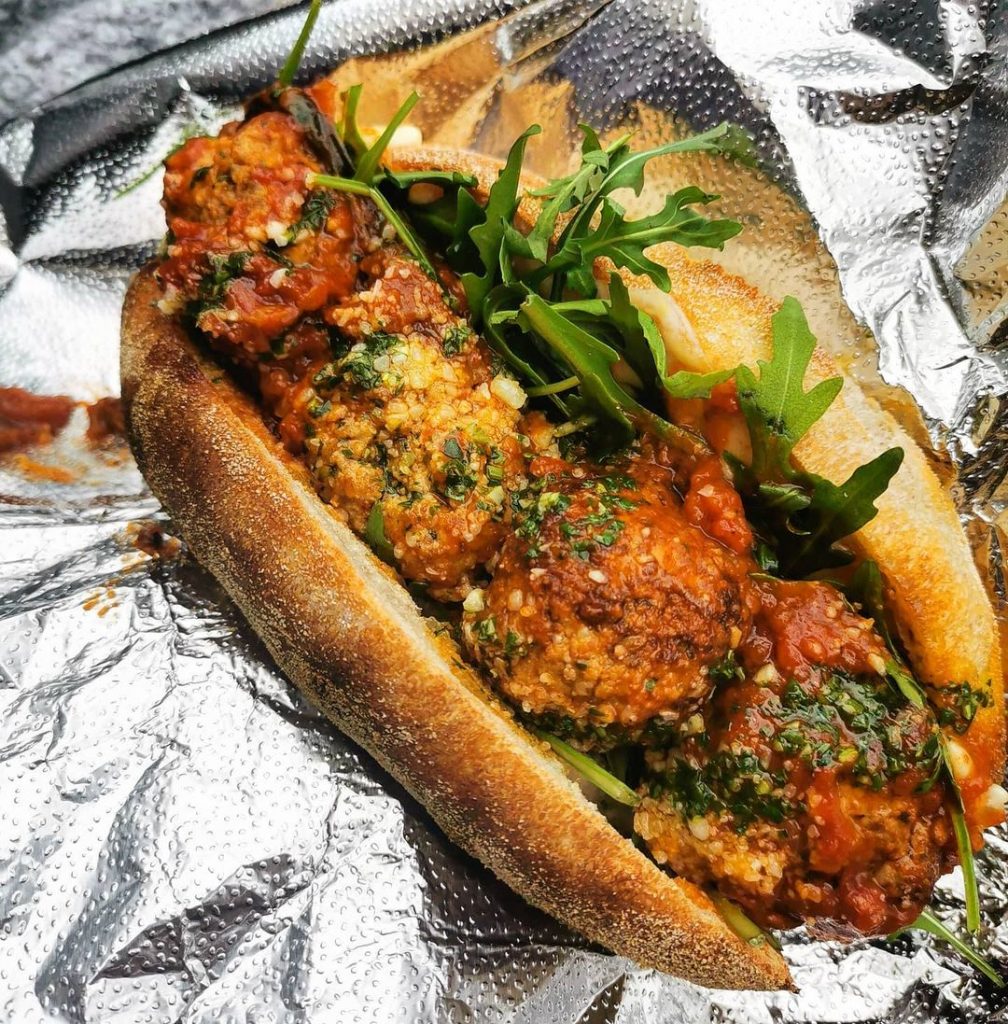
Noah, meanwhile, puts the resurgence down to the recent upswing in ’90s nostalgia.
“I think it’s more so the ’90s nostalgia craze that has permeated pop culture today. From fashion to TV to Art, the ’90s are having a big resurgence. The Sopranos being a fixture of that era’s look and feel definitely adds to the allure of Italian delis.
“The nods to Sopranos stems from the fact that we all grew up watching that show. Even when we were too young to really appreciate the nuances of the show, it was on in the background as our parents watched. On the day-to-day we get to revisit our favourite episodes and scenes with customers who come in wanting to reminisce. Most of the staff has never watched unfortunately so that puts a damper on things. Angelenos, man.”
Despite Regina’s having Sopranos themed merchandise for sale (we desperately need one of these snapbacks, fyi) and a significant portion of their feed and aesthetic influenced by the show, Roman isn’t too familiar with the trials and tribulations of the former DiMeo Crime Family.
“The funny shit is I never watched the Sopranos – but it’s become a big part of the brand – Goodfellas, on the other hand, is a bit too familiar.”
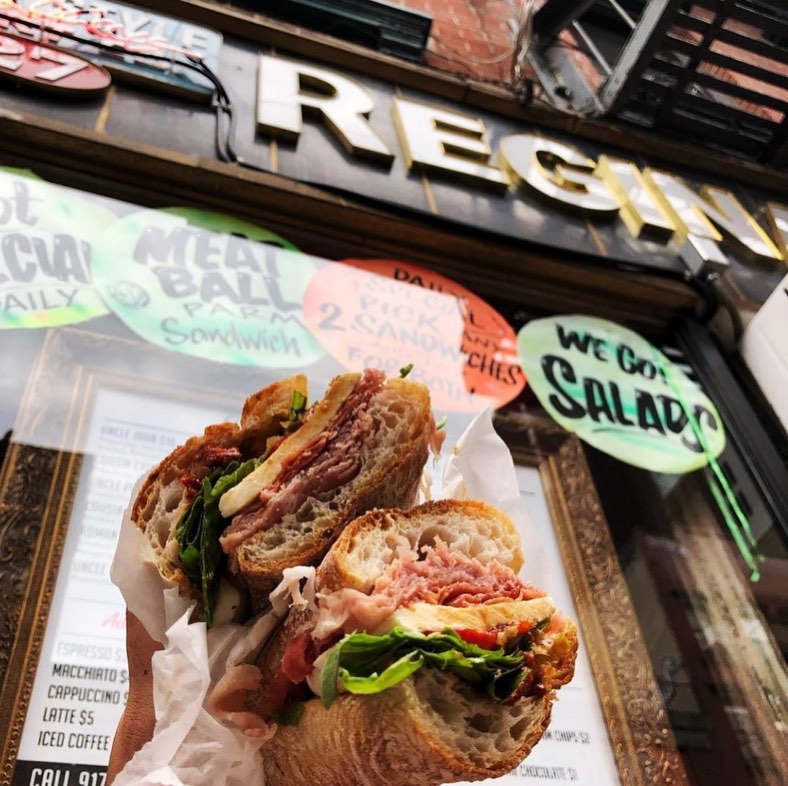
Our Gabagool and giardinara starter well and truly devoured, Sam and Meg lead us into the old B-Lounge kitchen, home of innumerable hoagie roll experiments and relentless salami slicing (not a euphemism. Stop giggling). It’s what you imagine Carmela’s weekly grocery shop for Tony looks like; Mortadella, prosciutto, smoked ham, provolone, burrata, olive salad, pickled peppers. Cold cuts upon cold cuts upon cold cuts. Between mouthfuls of the Bing’s breathtaking muffuletta, Sam explains how this paisan picnic has been meticulously sourced from day one, to ensure authenticity and quality.
“Some of our produce comes from Amato, then we have a salami supplier in London called Gastronomica, they import the Italian cured meats and cheeses, so that’s where I got the gabagool and provolone from. But I’m looking to try and make it a bit more local. We get all our meat from Littlewoods in Stockport, I live just down the road from them. Couple of things come from the Butcher’s Quarter, I know a few of the staff there, so I just try and keep it as local as possible. But there’s just no one curing meat in their garage round here yet or anything like that. Hopefully it’ll happen but until then I’ll have to look a bit further afield.
“One of the main issues I’ve faced is finding the right bread, which is why I’ve ended up baking it myself, even though I’m not a baker at all. I’ve just had to be testing recipes now for seven or eight weeks. I even tweaked it last week, but you just can’t get the correct bread for it. These hoagie rolls just don’t exist anywhere in Manchester. I know Triple B Bagels have just started doing hoagies but they keep their secrets close to their chests.”
Such astute ingredient research is paramount for making a legit product, as Roman and Noah both attest.
“The perfect Italian deli sandwich,” Roman explains, “is the bread, olive oil, cheese and of course your selection of provisions. None of the shitty stuff.”
“It’s the bread and the sauce for us,” shares Noah, “A beautifully seeded semolina baguette, lathered in a skillfully prepared aioli or pesto or spicy vodka sauce is the combination that yields a great italian sandwich. Obviously the meats and cheese and produce is paramount, but they are nothing without a great baguette and a great sauce.“
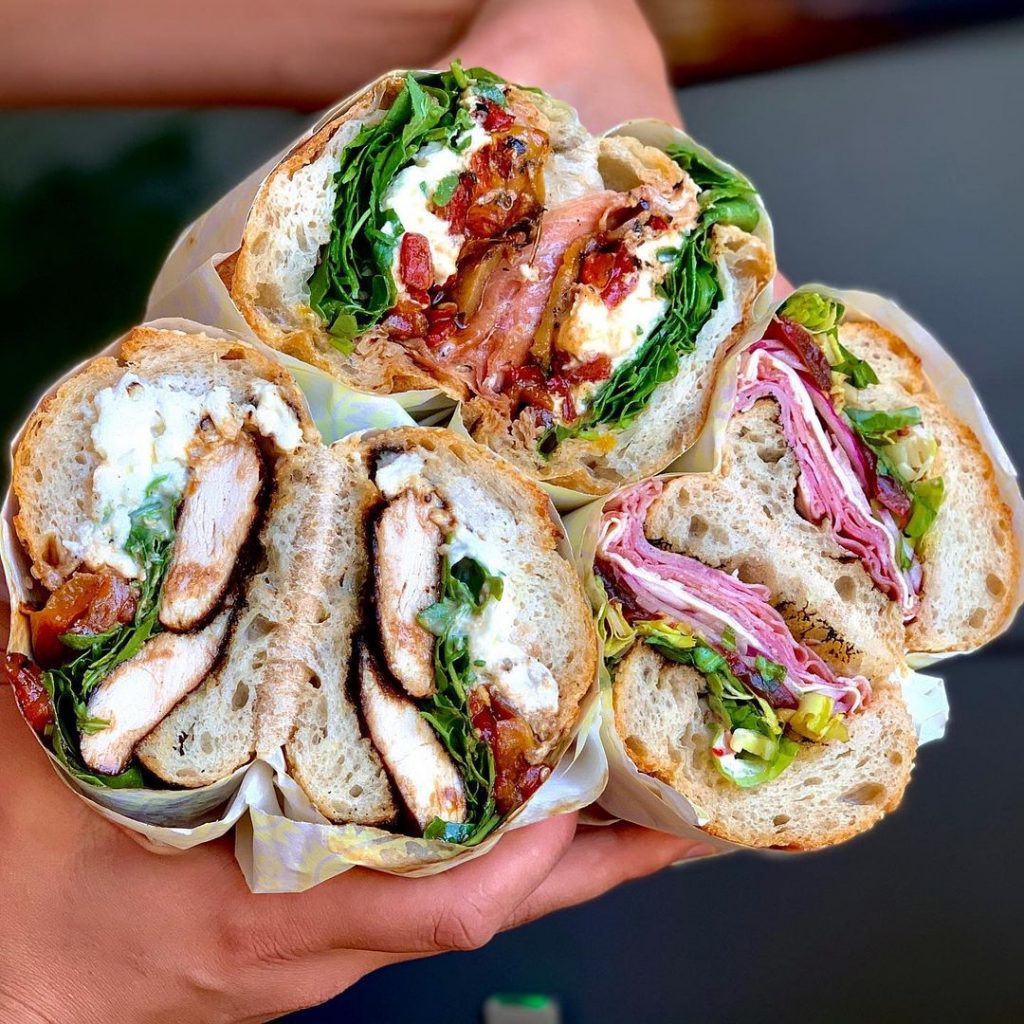
“Veal parmesan sandwich, fuck you”
Richie Aprile
So how are we marrying these two cultural phenomenas together, then? Well, if you’re Sam and Meg, you’re slowly but surely working your way through the entire Sopranos crew and naming a sandwich after each and every one of them, much like the mushroom shawarma stuffed Paulie Walnuts or recent special Silvio Piccante (‘Nduja-honey glazed chicken, garlicky friarielli, roasted pickled peppers, creamy Italian dressing and rocket).
“We had to go with the Paulie Walnuts because he’s the most hilarious character in the whole show. I couldn’t believe he was a real guy (Tony Sirico, who plays Paulie, was an alleged associate of the Colombo Crime Family in New York, twice spending time in jail for robbery and felony weapons charges).
“I really want to do a sandwich called the Moltisanti at some point. I definitely want to do a Richie Aprile veal parmesan sandwich. Gotta do that. I’m gonna try and do one for every character eventually. You’ve got Hesh, I’d maybe like to do a white fish, Jewish style sandwich for him. Any of the characters I’m open to trying something for. But I also don’t want to just say it’s only Sopranos, so for instance this week we’ve done a Banh Mi called the BadaBanh Mi, so we’re not having a strict Sopranos theme.”
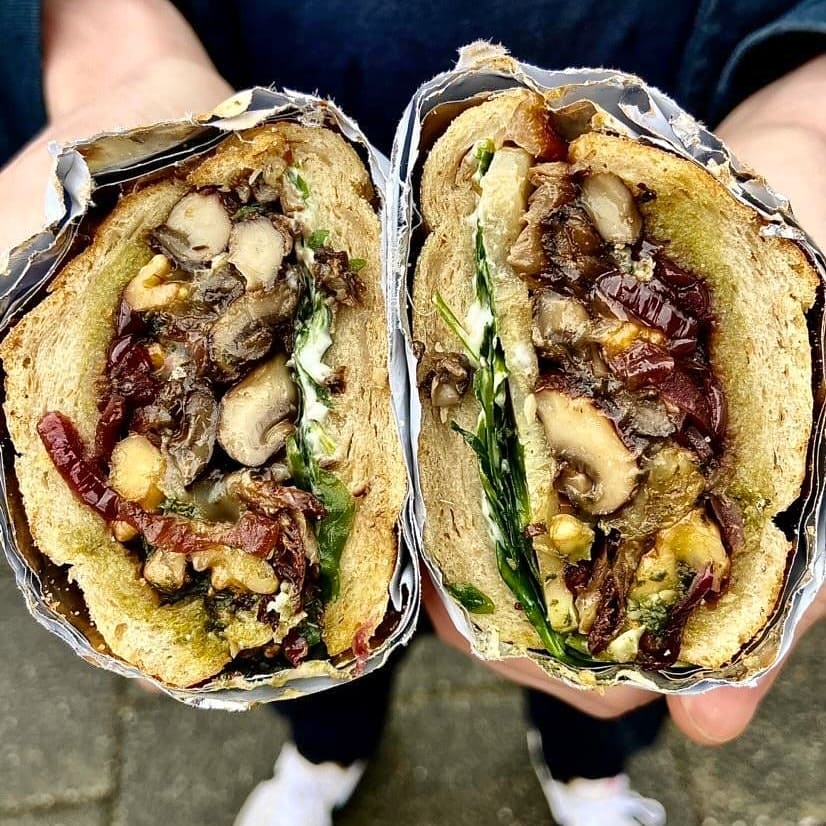
For Mr. Grandinetti, however, his tastes are even simpler.
“Being around sandwiches so much, I slowed down eating them, so if I was to watch Goodfellas again something that feels real is a sauce sandwich. When I was younger and hungry, running around the house my mother used to just throw tomato sauce on a piece of bread. I loved it.”
Meanwhile, over in Cali, Noah knows that when it comes to settling down for another viewing of ‘Pine Barrens’ or ‘College’, there’s only one san’ on his menu that’s getting a look in.
“Gotta be the Italian. Tony is eating Gabagool virtually every episode and at the moment that’s the only sandwich with Gabagool.”
“What’s it take to get some fuckin’ smoked turkey in this house, huh? I bust my ass all day, I come home, I want a little smoked turkey. Is that too fuckin’ much to ask!?”
Tony Soprano
While the Bing team originally developed a love for all things Italian American from their time in Melbourne, working at an Italian restaurant that leant heavily on such cultural identity, they recognise it may be a little while yet until they can officially go the whole hog and properly set up shop, allowing their inspirations to achieve their final form. And while in the kitchen, Sam and Meg have been able to authentically replicate some of Bensonhurst and Arthur Avenue’s finest heroes, when it comes to Italian delis, aesthetics are everything, meaning there’s plenty of research to be undertaken if the Bing is to become a neighbourhood hangout for those of us who really want to spend six hours a day playing cards in our trackie bottoms while greeting everyone we recognise with a hearty “OH! There he is”.
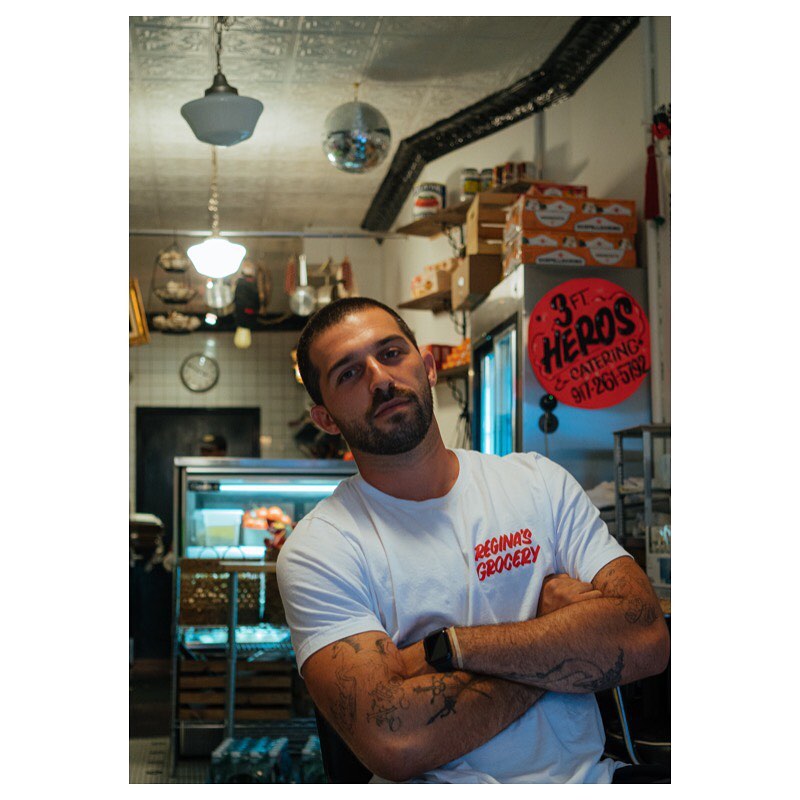
One look at the feed of any self respecting New York sandwich shop or pizzeria tells you that there is a no frills, no bullshit tradition to the look of not only the establishments themselves, but also the patrons who have been spending their hard earned money there day-after-day for generations. Such an ungentrified quality is a rare thing nowadays and is perhaps a reassuringly comforting trait that is the reason why younger generations are suddenly vibing with chefs and personalities who were once just kids from the old neighbourhood. Brooklyn duo Frank Pinello and Mark Iacono of Best Pizza and Lucali, respectively, have no shortage of television gigs through both the dedication to their craft and an unwavering realness regarding their background.
That the majority of Roman’s insta posts are captioned ‘howyadoin” signifies he is cut from the same cloth as his fellow Brooklynites, whether he’s serving up sans at Regina’s, conducting business in his car, appearing in G-Shock adverts or slicing pizzas down at Manero’s on Mulberry Street. It’s a basic mentality ingrained through over a hundred years of tradition. No nonsense is tolerated.
“I’m pretty basic man – I only wear Jordans, well fit jeans and a Hanes tee. Rolex and necklace I guess is a must.”
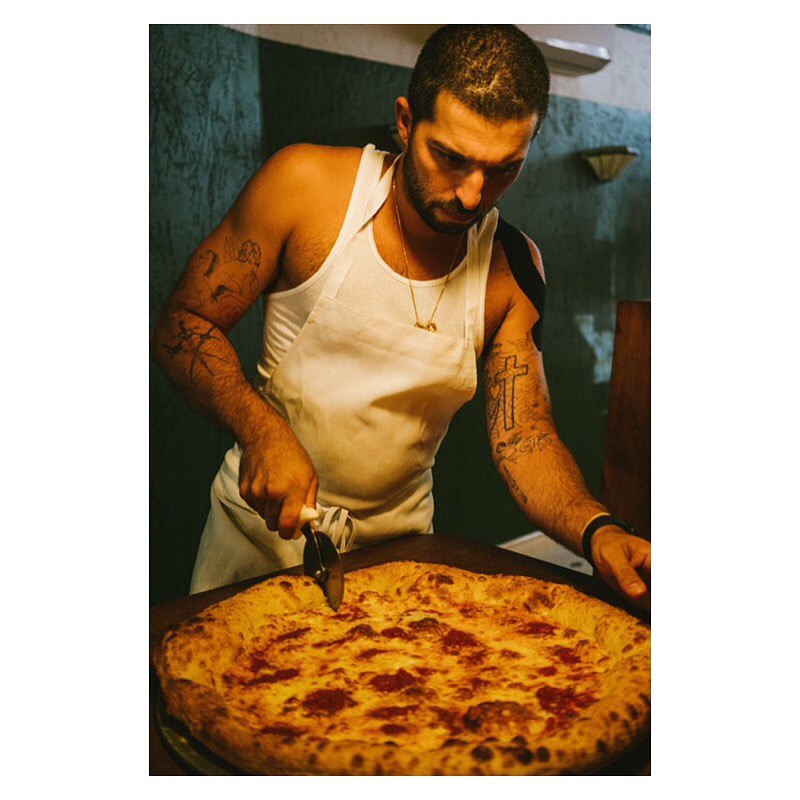
Over at Ggiata, with a childhood of Jersey memories serving as inspiration, Noah elaborates on this basic history and how they’ve deviated slightly for their Los Angeles operation, while sticking to their roots at the same time.
“When building the brand behind Ggiata, we actually found that many of the italian delis and pizzerias of New Jersey and New York followed a similar playbook. Italian sounding first names like ‘Stella’s’ or ‘Arturo’s.’ The logo would almost always be some primary color of the Italian flag like red or green or both, written out in elongated script letters. This is something we tried to acknowledge but also avoid when conceptualising Ggiata, in part because we wanted to pay homage to our neighbourhood delis back east but also build a brand that felt more modern.
“What we love about the deli growing up is that you can literally wear whatever. You want to get fly to go to the deli? You get fly. You want to roll out of bed in some sweats and go to the deli? That’s what you do. The aesthetic was always to look like you weren’t trying too hard, regardless of whether or not you actually put some thought into your outfit.”
But outside of the deli, growing up in Montclair, surely the lads from Ggiata were always hoping to catch a glimpse of the town’s most respected psychiatrist, Dr. Jennifer Melfi?
“Sadly we never saw her. We are all still secretly hoping we’ll run into Jamie-Lynn Sigler in LA. That was our OG childhood crush.”
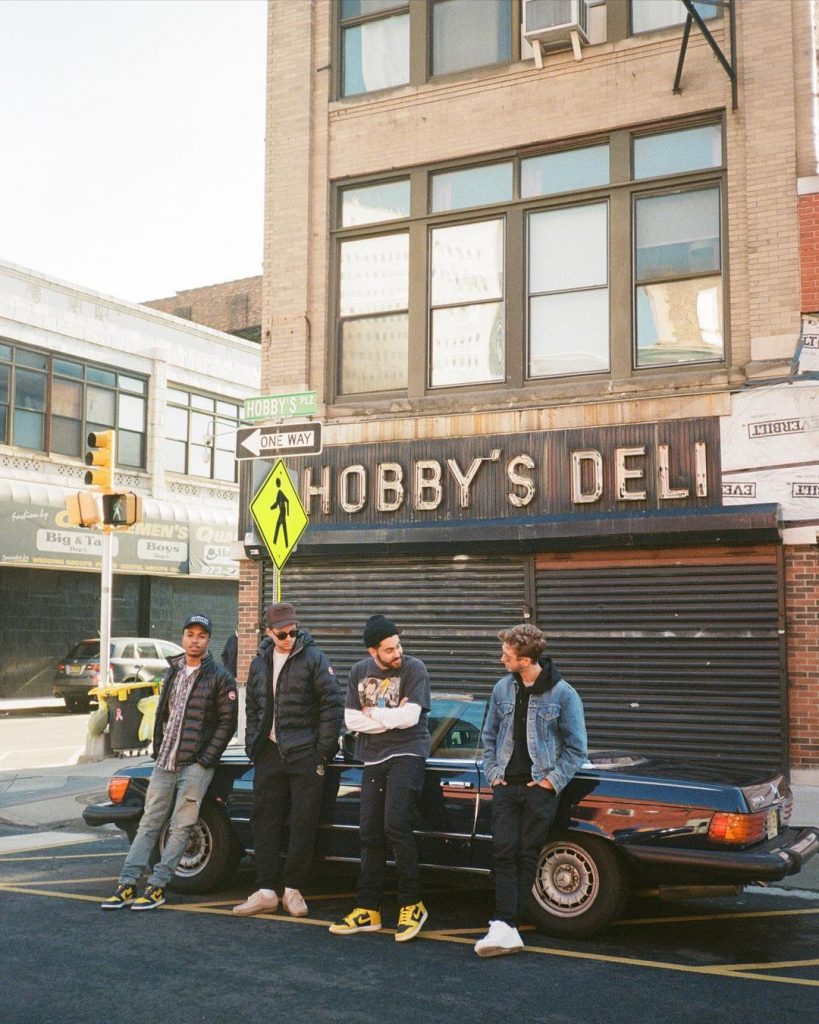
After a couple of hours in Sam and Meg’s gloriously hospitable company, we depart, armed with a couple of Bings and muffulettas for good measure, meaning we likely won’t be needing to eat anything else until the following week. Seeing firsthand the level of care and attention they have poured into not only their product, but their entire brand, in such a short space of time, is astonishing. And not only have they been rewarded with a bigger space to produce more cured meat magic, but just recently, Christopher Moltisanti himself, the main man Michael Imperioli, dropped a comment asking about vegetarian options on one of their instagram posts.
An Emmy winning Goodfellas and Sopranos OG taking an interest in your sandwiches? If that’s not the greatest endorsement in the history of Italian food, we don’t know what is. Don’t be a mook, get your pre-order placed with the Bing this weekend and forget about it.
